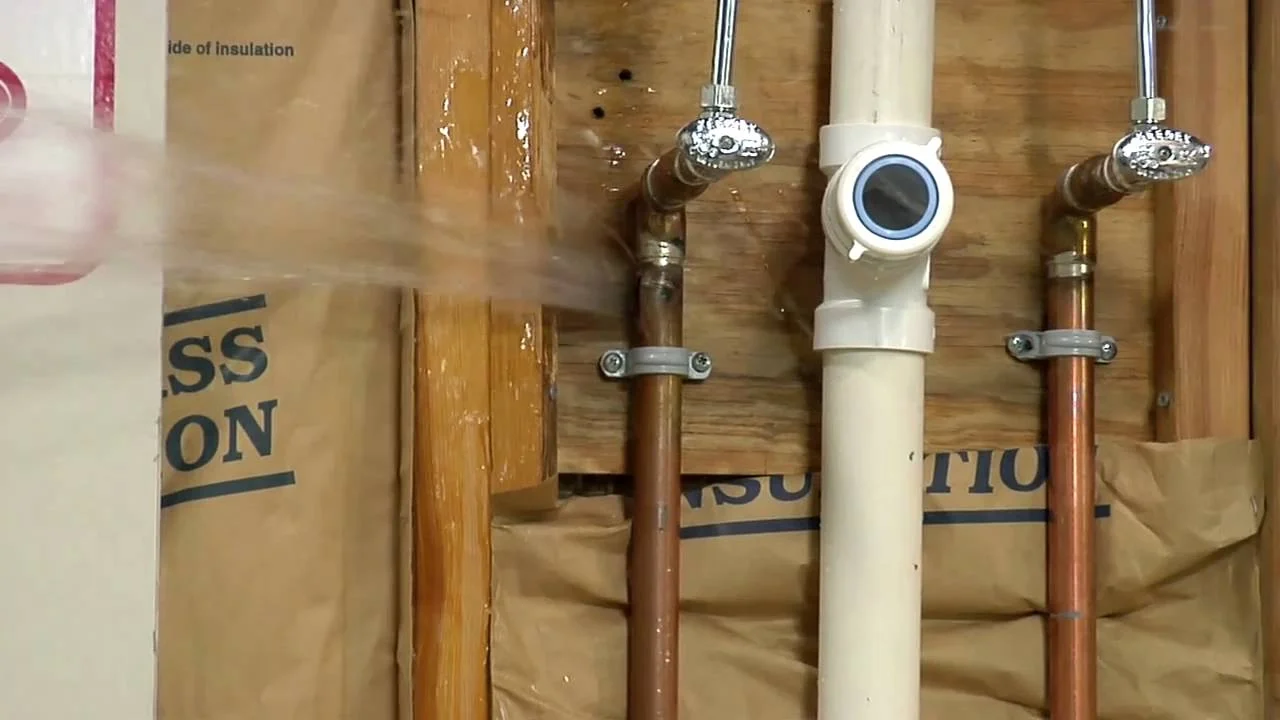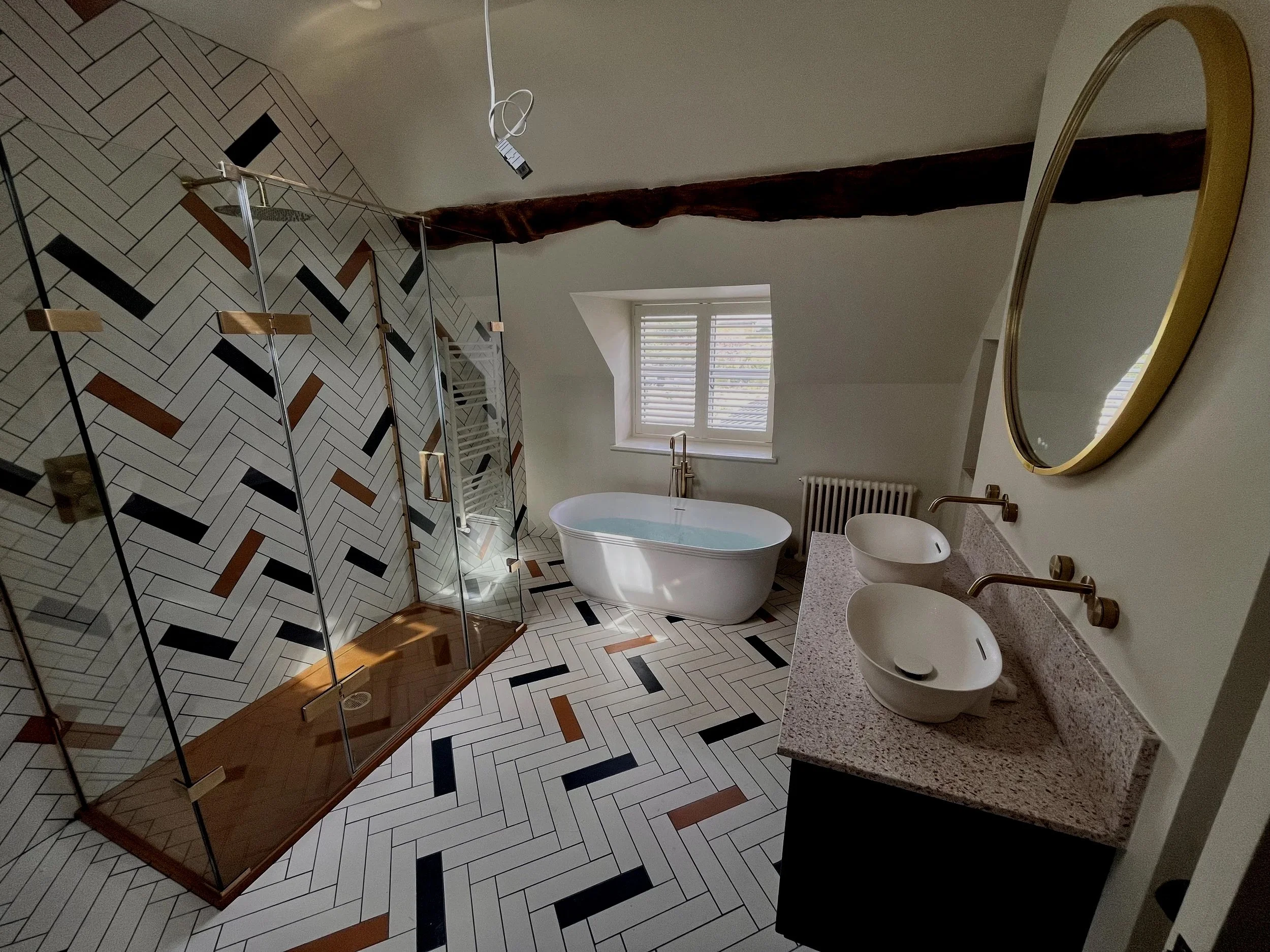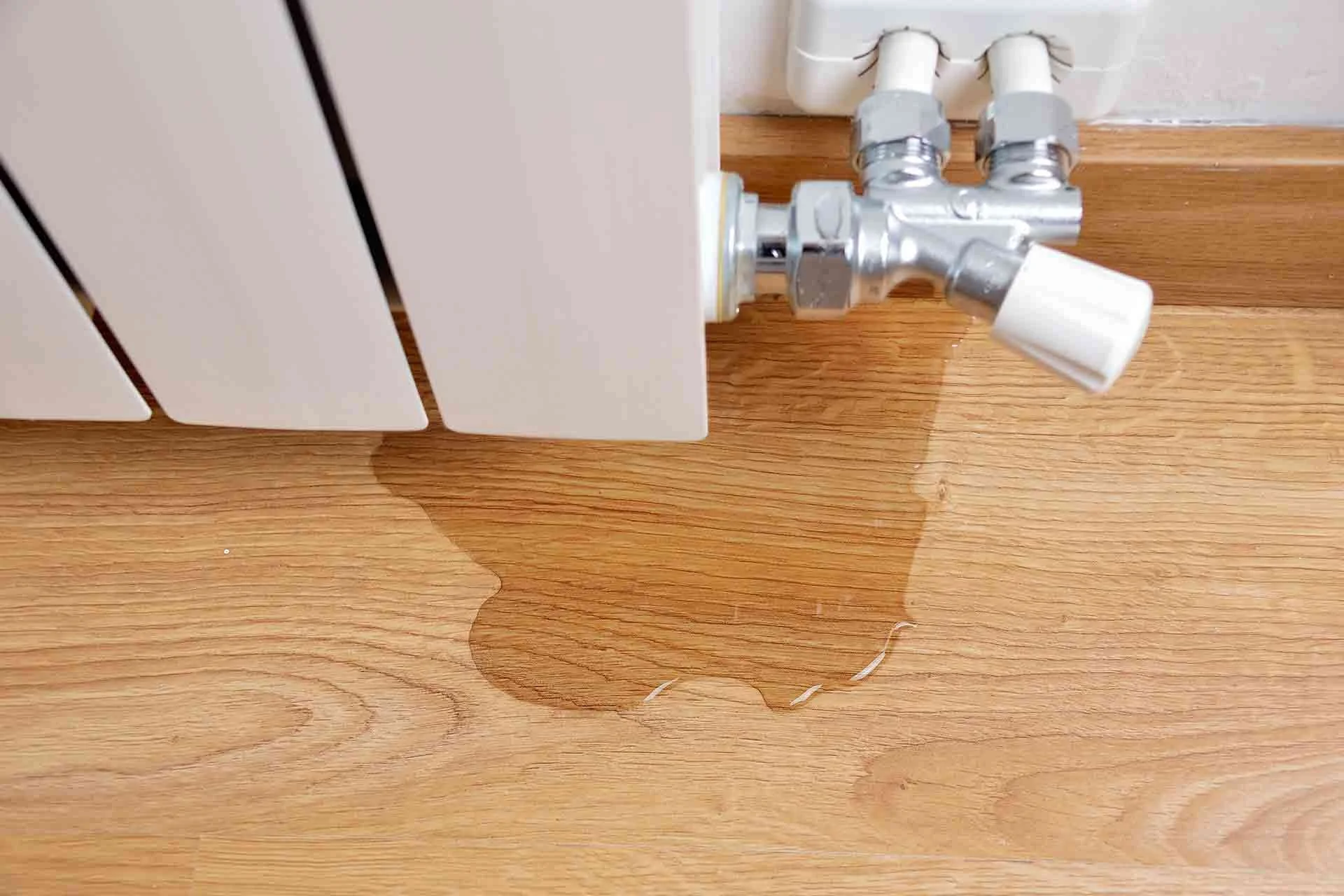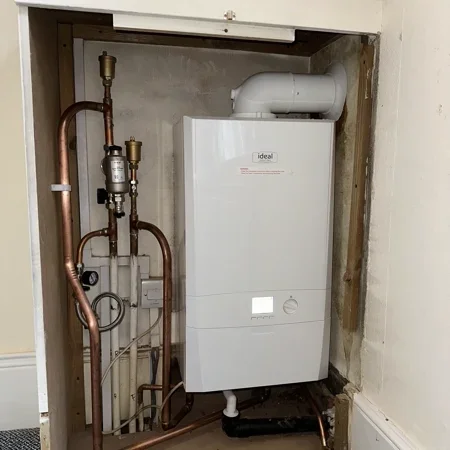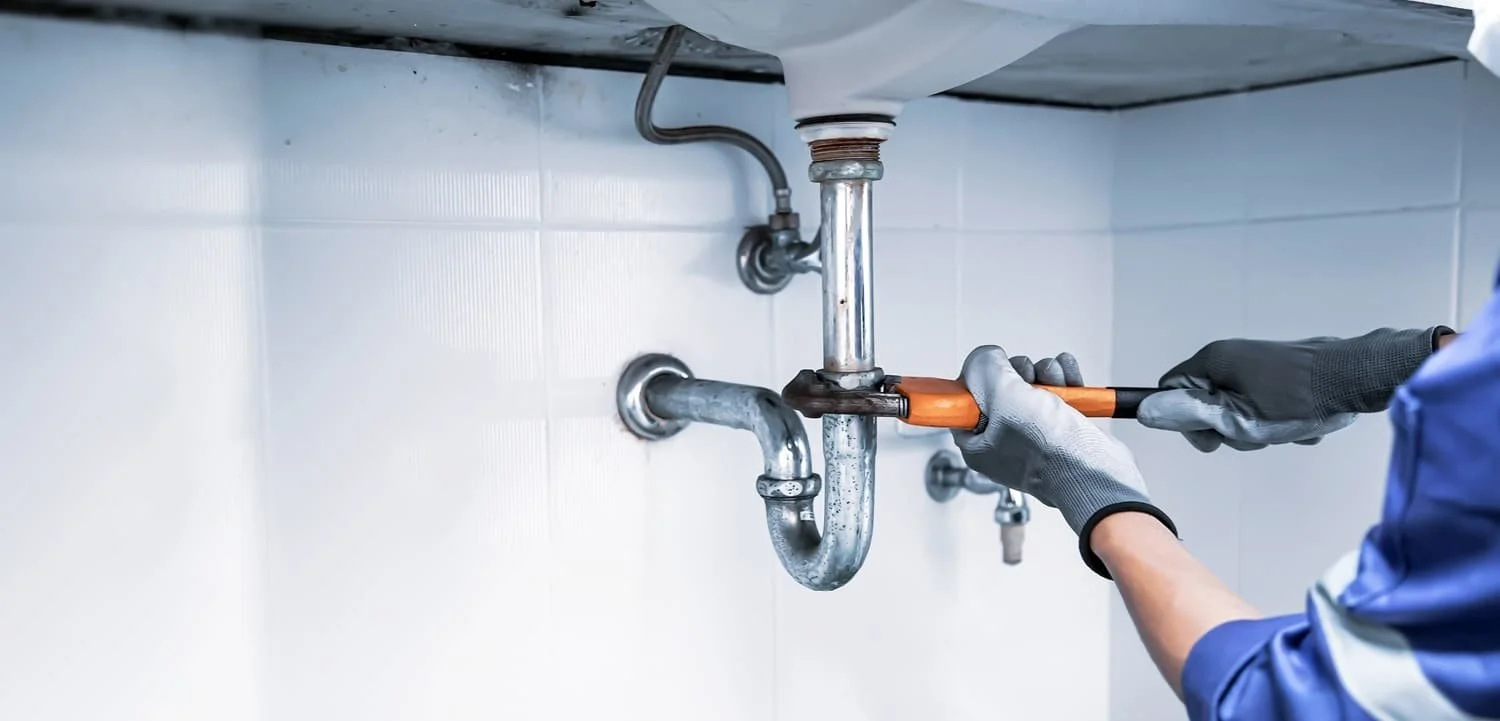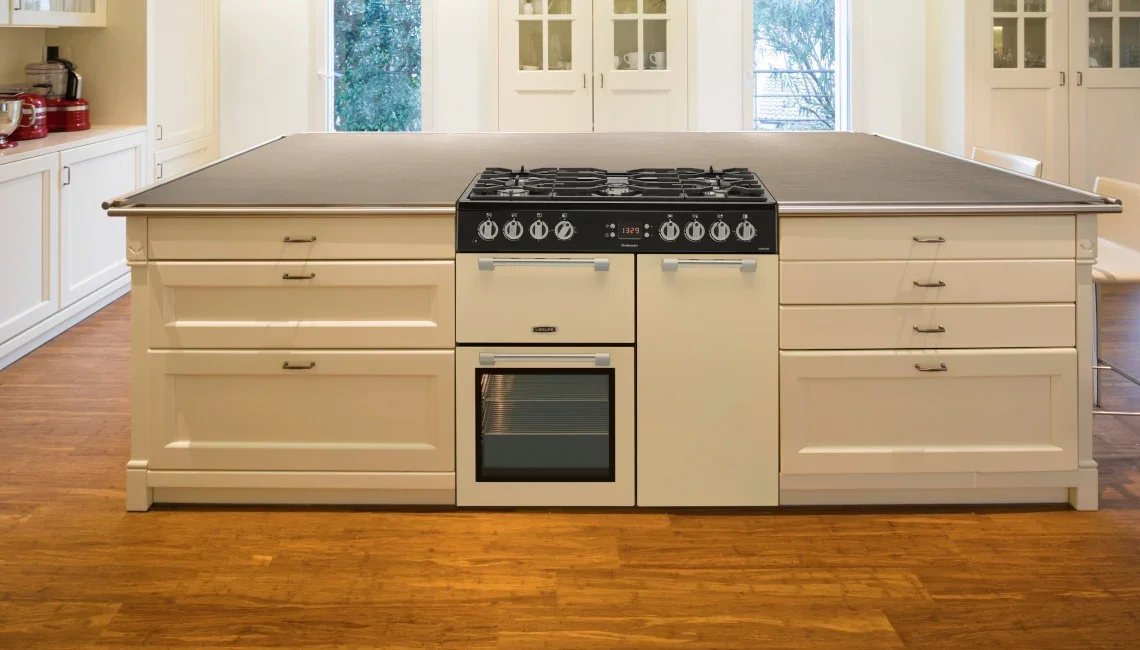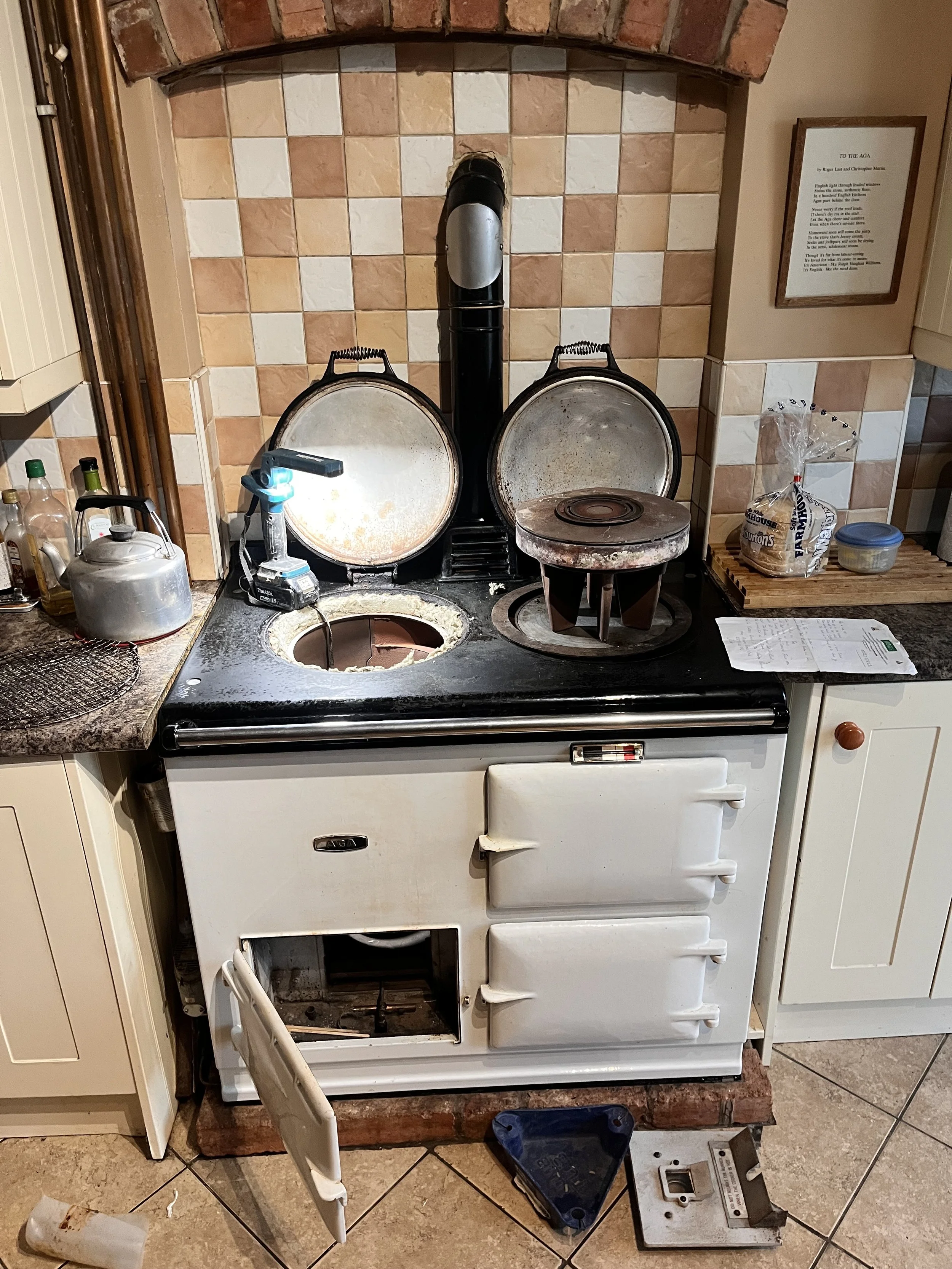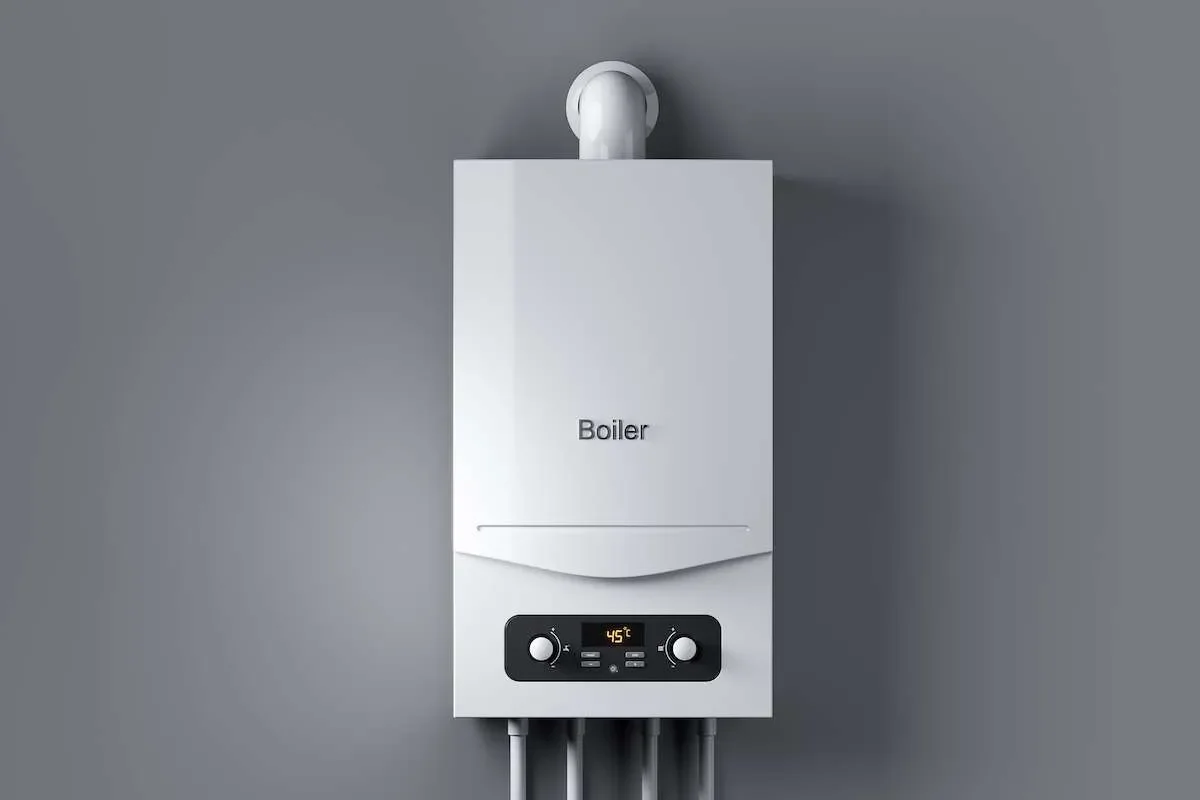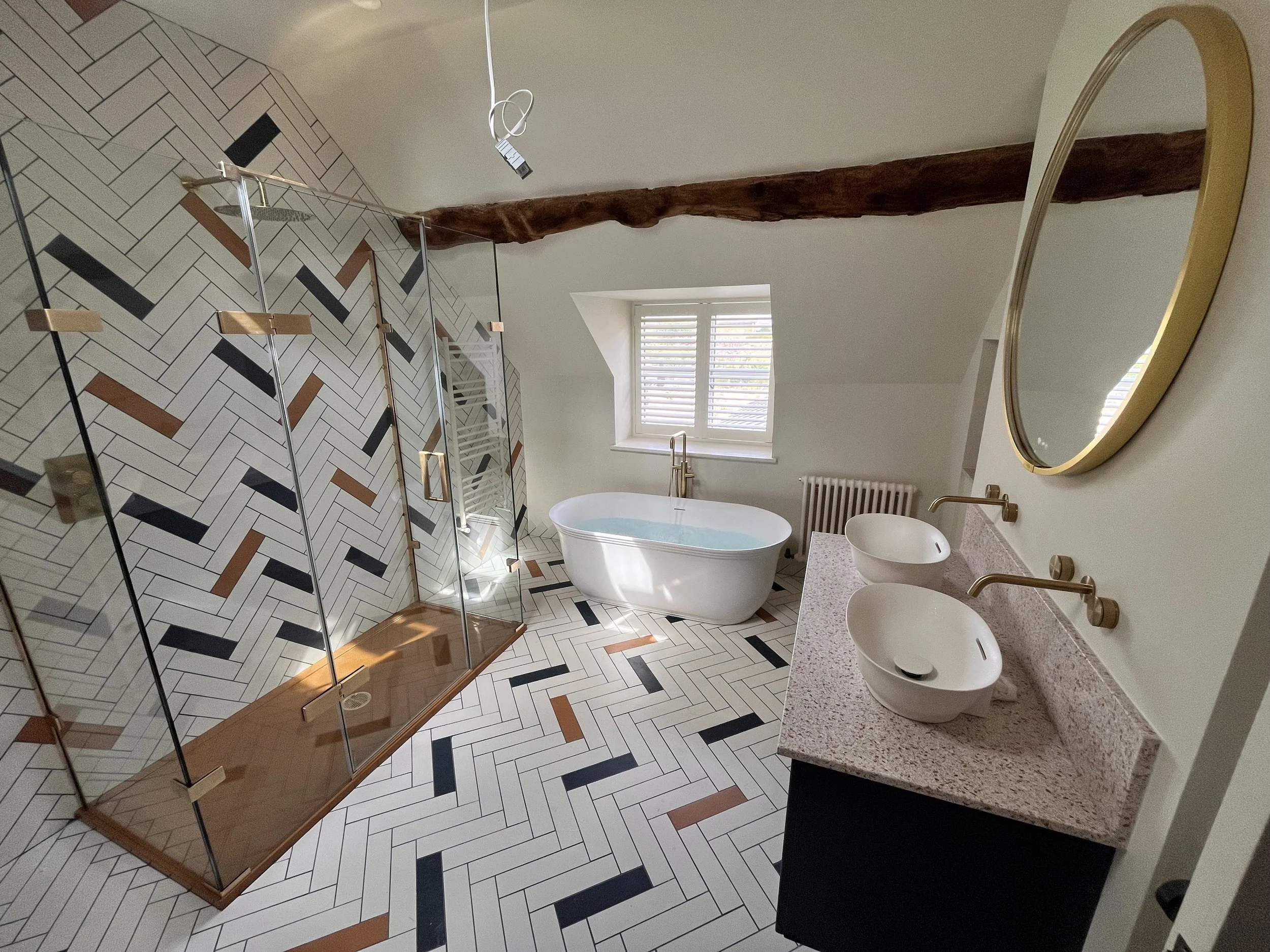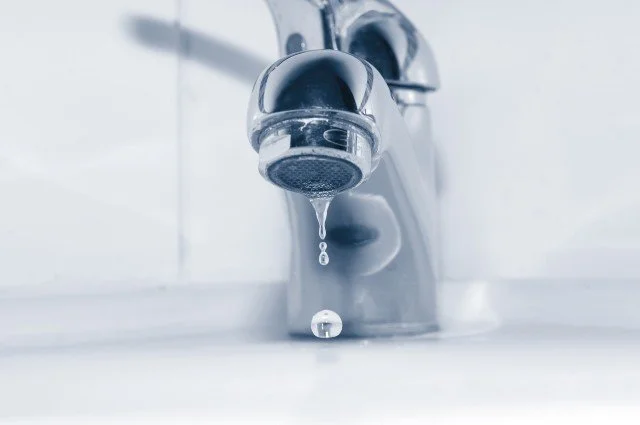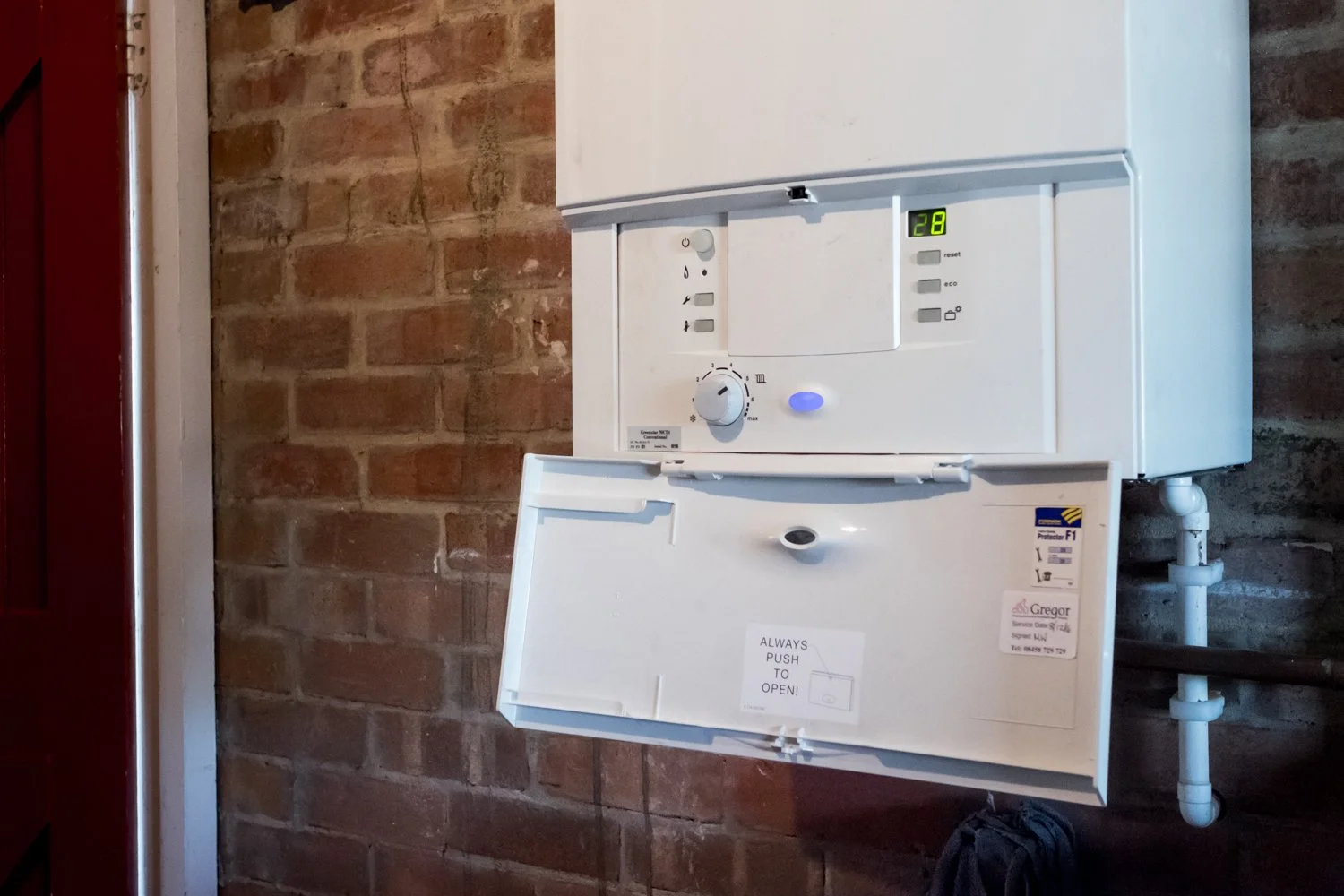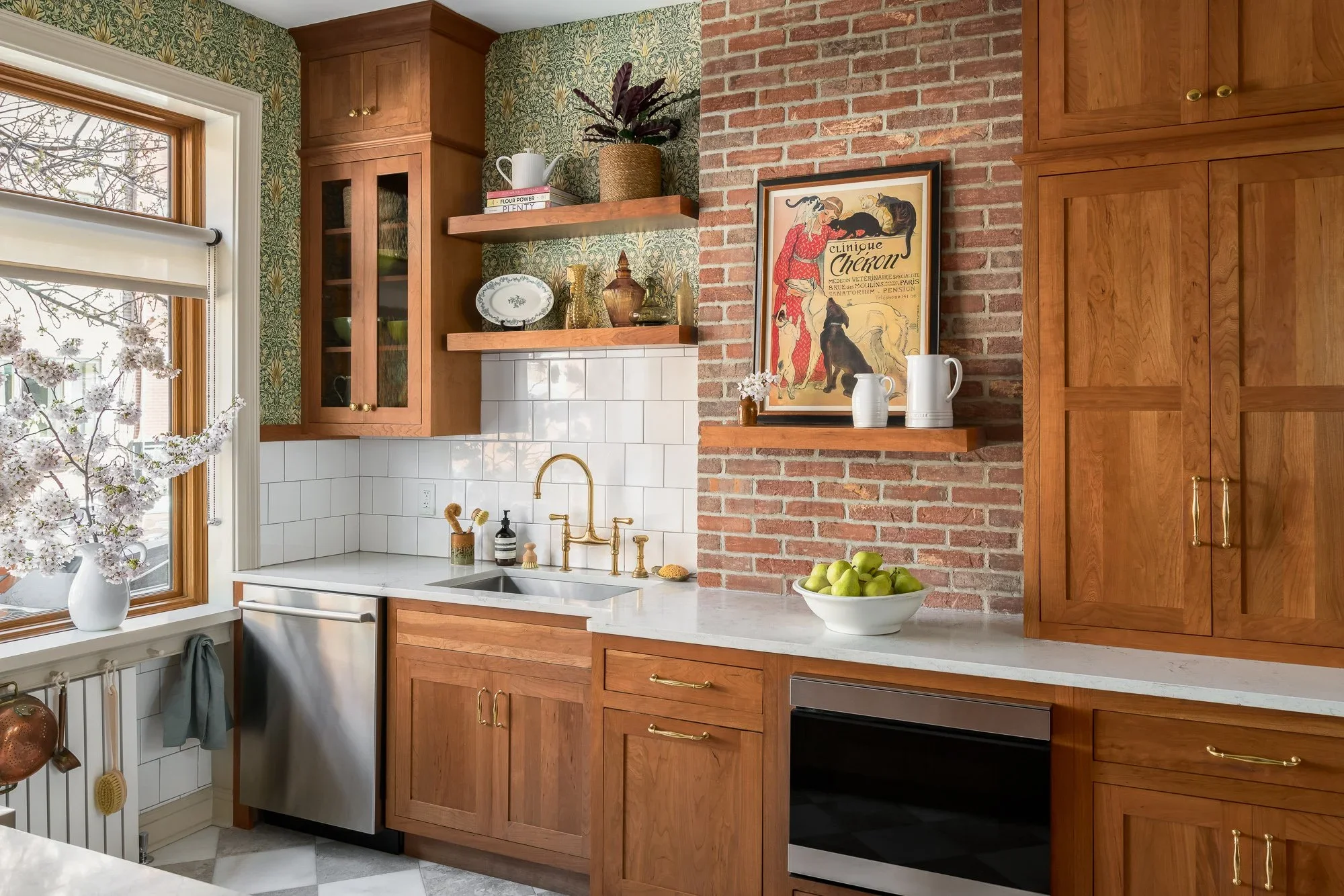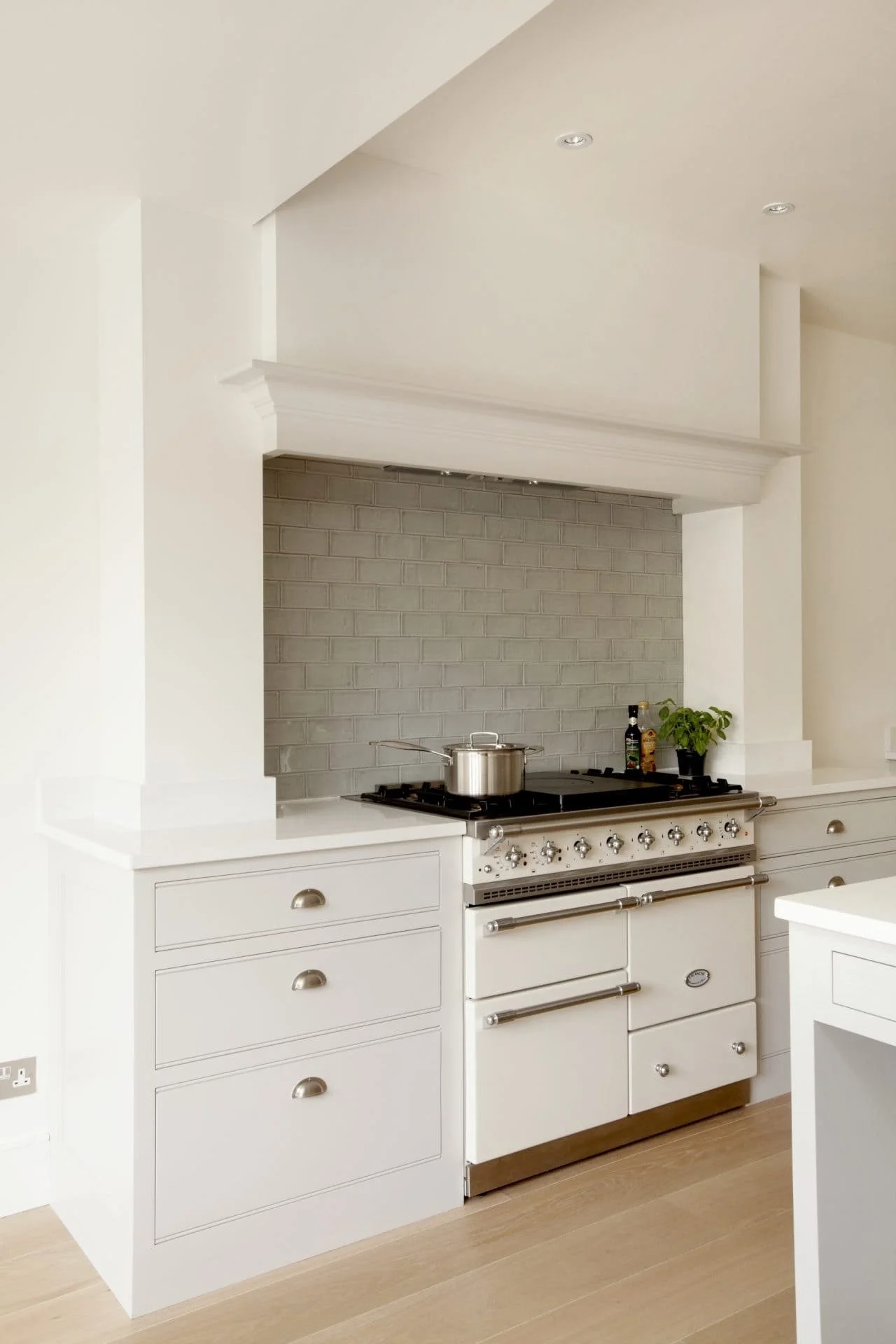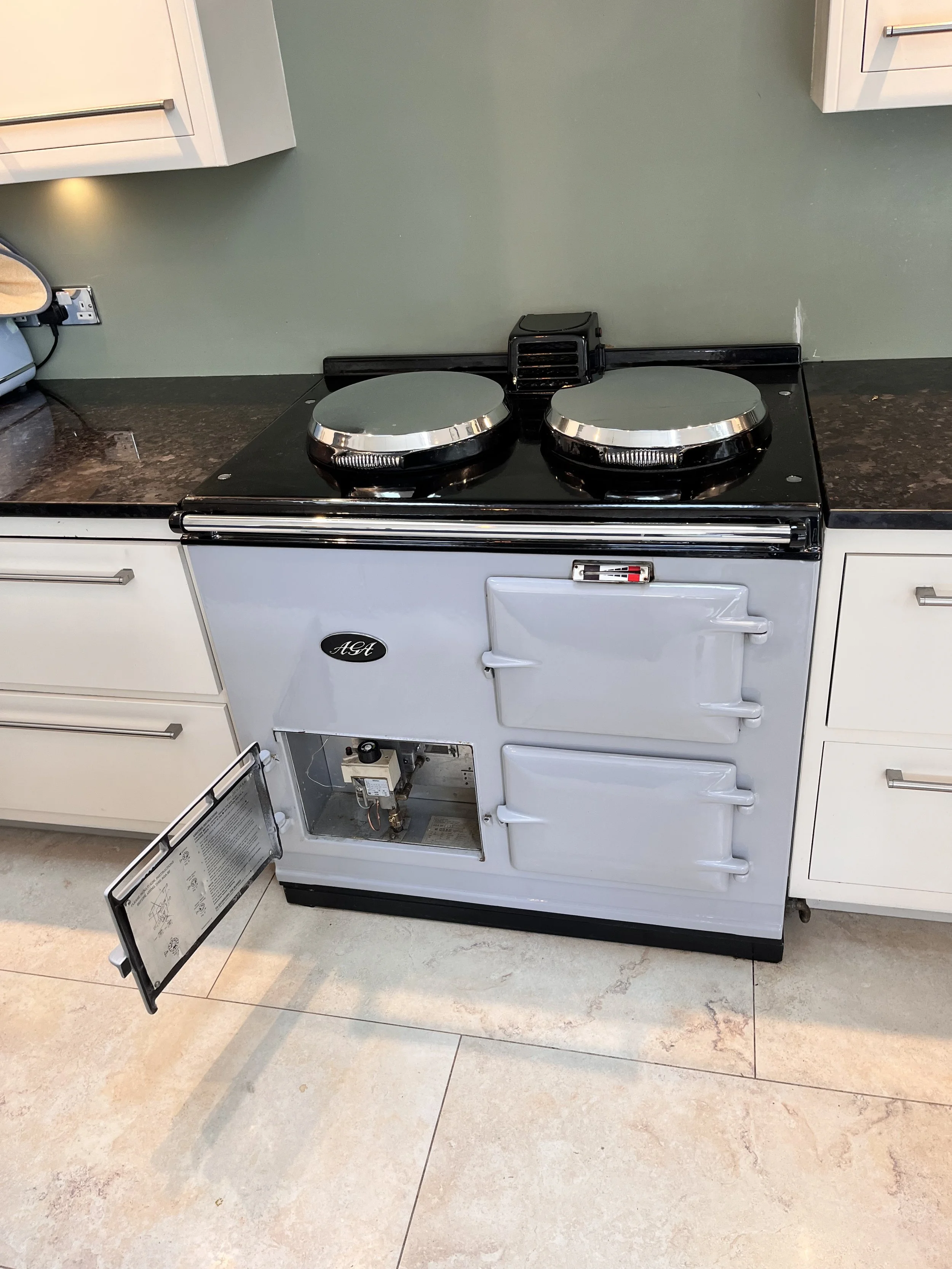Eco-Friendly Bathroom Upgrades That Reduce Water Bills
Imple swaps that save water, energy, and money—without compromising comfort.
With rising water bills and an increased focus on sustainability, many homeowners across Worcestershire and the Cotswolds are looking for easy, long-term ways to make their bathrooms more efficient. The good news? You don’t need a full renovation to reduce water usage—just a few strategic upgrades can make a big difference.
Below are the most effective eco-friendly bathroom improvements that lower costs, conserve water, and modernise your home.
1. Install Low-Flow Taps and Showerheads
Modern water-saving taps and showerheads are designed to maintain strong pressure while using significantly less water.
Benefits:
Use up to 60% less water
Reduce hot water consumption (lowering energy bills)
Improve flow control and comfort
Best for: Older properties where older fittings waste litres unnecessarily.
2. Upgrade to a Dual-Flush or Low-Flush Toilet
Toilets are one of the biggest water users in the home. A traditional toilet can use up to 13 litres per flush, while a modern eco-flush loo uses as little as 4–6 litres.
Options include:
Dual-flush systems – choose half or full flush
Eco-flush converters – retrofit an older cistern
Modern low-flush toilets – built-in water-saving technology
Ideal for Cotswold cottages and family homes where toilets are frequently used.
3. Choose an Aerated Basin Mixer
Aerated taps mix air with water, giving you a steady stream that feels full but uses far less.
Why homeowners love them:
Comfortable, splash-free flow
Lower long-term water usage
Stylish modern designs
Perfect for eco-conscious renovations.
4. Fit a Thermostatic Shower Valve
These valves maintain a steady temperature, meaning less water wasted waiting for the right heat level.
Advantages:
Reduces scalding risk
Saves water and energy
Provides a more comfortable shower experience
A smart choice for families, holiday lets, and modernised Cotswold homes.
5. Install a Greywater Recycling System
For major refits or new builds, consider a greywater system that reuses water from showers, basins, and baths for toilet flushing or garden use.
Benefits:
Further reduces mains water usage
Ideal for large households
Future-proofs your home with sustainable tech
While the upfront cost is higher, it offers long-term savings—especially in rural areas with high water demand.
6. Consider a Water-Efficient Bath
If you love soaking, choose a bath designed to use less water while still feeling luxurious.
Features to look for:
Ergonomic shapes
Lower capacity tubs
Rapid-fill taps for efficiency
A great upgrade for homes blending traditional design with modern sustainability.
7. Fix Drips and Hidden Leaks
A dripping tap or constantly running toilet can waste thousands of litres per year.
Small fixes, big savings:
Replace worn washers
Check for silent cistern leaks
Inspect flexible hoses and isolators
This is one of the cheapest, quickest ways to cut water usage instantly.
8. Choose Water-Saving Appliances
If your bathroom includes a washing machine, choose one with an A-rated efficiency label to reduce both energy and water consumption.
9. Upgrade to an Efficient Hot Water System
Your hot water setup has a huge impact on water waste. Modern combi boilers, unvented cylinders, and heat pumps deliver faster hot water with less waste.
Benefits:
Less water run before hot temperature reached
Lower energy bills
Better flow to multiple taps/showers
Book a Home Water Efficiency Check
Our local plumbing team offers full bathroom upgrades across Worcestershire, Gloucestershire, and the Cotswolds, including:
Leak detection and repairs
Water pressure testing
Fixture and appliance upgrades
Rainwater collection installation
📞 Call us today to book your bathroom consultation
📧 Request a free quote via email
🌿 Trusted by homeowners across the Cotswolds and beyond
Saving Water in the Cotswolds: Small Changes, Big Impact
Across the rolling hills and stone-built villages of the Cotswolds, water feels abundant — streams winding through meadows, and gardens thriving on morning dew. But beneath the surface, the Cotswolds faces the same growing challenge as much of the UK: water scarcity.
With warmer summers, unpredictable rainfall, and rising household use, saving water at home isn’t just an environmental choice — it’s becoming a practical necessity.
The good news? Small, thoughtful changes can make a big difference to your water bills and the local environment.
Why Water Conservation Matters in the Cotswolds
The Cotswolds sits on limestone aquifers, which naturally store and filter water. However, this system also makes the region vulnerable to fluctuations in rainfall — dry spells can quickly reduce groundwater levels.
Local water companies, including Severn Trent, have warned that the area could face seasonal shortages if domestic water use continues to rise.
“We’re seeing higher demand year-round — especially during warm months, when garden and home water use spikes.”
— Severn Trent Water, 2025 Resource Report
Even modest conservation at home helps: reducing the strain on treatment plants, maintaining river health, and keeping household bills in check.
Everyday Ways to Save Water
1. Fix Leaks and Dripping Taps
A dripping tap can waste up to 5,000 litres a year — enough to fill more than 60 baths.
Tightening fittings or replacing worn washers can solve most leaks within minutes.
2. Swap Baths for Showers
A typical bath uses around 80 litres of water, while a 5-minute shower uses 40–50 litres.
Consider installing a low-flow showerhead for even greater savings without compromising comfort.
3. Upgrade Toilets and Taps
Modern dual-flush toilets use as little as 4 litres per flush — half the amount of older models.
Aerated taps mix air with water, reducing flow but maintaining pressure.
4. Collect Rainwater
Installing a water butt beneath your gutter downpipe can capture hundreds of litres for garden use. It’s a simple way to keep lawns green without relying on the mains.
5. Choose Efficient Appliances
When replacing dishwashers or washing machines, look for A-rated models.
These use significantly less water and energy per cycle — ideal for large families or regular laundry loads.
Outdoor Water Wisdom
Cotswold gardens are famous for their charm — but they can also consume vast amounts of water in summer.
Here’s how to keep them sustainable:
Water early morning or late evening to reduce evaporation.
Use mulch and compost to retain soil moisture.
Choose native plants like lavender, thyme, and foxglove that thrive in drier soil.
Avoid pressure washing patios too often — a broom and bucket often do the job just as well.
The Impact of Small Changes
Understanding Local Water Pressure and Supply
If you’ve noticed lower pressure during dry spells, it’s not just your plumbing.
In Worcestershire and Gloucestershire, seasonal demand can affect pressure — particularly in rural villages with shared mains lines.
Installing a pressure-balancing valve or upgrading old pipework can help maintain consistency even when the local network is under strain.
The Bottom Line
Water conservation isn’t about going without — it’s about using what we have more wisely.
For Cotswold homes, that means maintaining comfort, reducing waste, and protecting the landscape that makes this region so unique.
Whether it’s fixing a dripping tap, installing a rainwater tank, or upgrading your old boiler system, every drop saved adds up to a healthier, more sustainable future.
Book a Home Water Efficiency Check
Our local plumbing team offers full inspections across Worcestershire, Gloucestershire, and the Cotswolds, including:
Leak detection and repairs
Water pressure testing
Fixture and appliance upgrades
Rainwater collection installation
📞 Call us today to book your water-saving inspection
📧 Request a free quote via email
🌿 Trusted by homeowners across the Cotswolds and beyond
Wet Room vs. Traditional Bathroom: Which Suits Cotswold Homes Best?
For many Cotswold homeowners, the bathroom is more than a practical space — it’s a retreat. Whether you live in a stone cottage in Broadway or a renovated Georgian home near Cheltenham, the right bathroom design can elevate both comfort and property value.
But one big question often arises during a renovation:
Should you choose a wet room or stick with a traditional bathroom?
Both options offer distinct benefits, but when it comes to heritage properties and rural homes, the decision deserves careful thought.
Let’s explore which is best for your home, your lifestyle, and your long-term investment.
What Is a Wet Room?
A wet room is a fully waterproofed (tanked) bathroom where the shower area is open or only partially enclosed — allowing water to drain directly through a floor gradient.
It’s sleek, minimalist, and perfect for creating a sense of space — even in compact bathrooms.
Key features of a wet room:
Level-access walk-in shower
Fully waterproofed flooring and walls
Discreet drainage system
Ideal for modern, open-plan designs
What Is a Traditional Bathroom?
A traditional bathroom separates each area — bath, shower, and toilet — often with raised shower trays and enclosed cubicles.
In period or listed homes, this layout complements original architecture, allowing for the inclusion of roll-top baths, panelled walls, and classic brass fixtures that echo the property’s character.
Key features of a traditional bathroom:
Enclosed shower or bath
Distinct “zones” for each function
Ideal for maintaining heritage style
Often easier to install in older buildings
Wet Rooms in Heritage Homes: Can It Work?
Many assume wet rooms are only for new builds or modern flats — but with expert planning, they can be adapted beautifully for Cotswold stone and listed homes.
The biggest consideration is flooring and waterproofing. Older homes often have uneven floors or timber joists, which require professional tanking and subfloor reinforcement.
When done properly, a wet room can:
Add a sense of modern luxury
Improve accessibility for all ages
Increase property value through practical design
However, without proper drainage planning, water can seep into floors or lower rooms — making skilled installation essential.
The Pros and Cons at a Glance
-
Elegant, open-plan design
Easier to clean (no shower trays or glass doors)
Perfect for accessibility and mobility
Can make small spaces feel larger
-
Requires expert waterproofing
May feel colder without underfloor heating
Potential for splash zones if not designed properly
-
Classic aesthetic suited to period homes
Easier installation and repairs
Defined zones for showering and bathing
Often warmer and cozier
-
More fixtures and edges to clean
Can feel smaller or more enclosed
Less accessible for those with mobility challenges
Which Option Suits Cotswold Homes Best?
For heritage and period properties, a hybrid approach often works best — blending traditional charm with modern practicality.
Example:
A wet-room-style walk-in shower paired with a freestanding roll-top bath creates a luxurious spa-like space without losing authenticity.
Natural materials like limestone tiles or reclaimed oak flooring can tie modern waterproofing with Cotswold character.
Heating & Water Considerations
When upgrading to a wet room, it’s essential to ensure your boiler and water pressure system can handle the flow rate.
For homes with gravity-fed systems, a booster pump or unvented cylinder may be needed for optimal shower performance.
Underfloor heating also pairs well with wet rooms — not only does it keep the tiles warm, but it also helps moisture evaporate faster.
The Bottom Line
If you own a modernised barn, converted farmhouse, or listed townhouse, your bathroom design should balance style, function, and longevity.
Choose a wet room if you want minimalism, accessibility, and a modern touch.
Choose a traditional bathroom if you value warmth, heritage aesthetics, and simpler installation.
Or blend both for the ultimate Cotswold retreat — timeless elegance with modern practicality.
Book Your Bathroom Consultation in Worcestershire & the Cotswolds
Our expert plumbing and renovation team specialise in heritage bathroom design, combining modern engineering with traditional craftsmanship.
Full wet room and traditional bathroom installations
Underfloor heating and waterproofing systems
Heritage-friendly plumbing solutions
Free design consultation and transparent quotes
📞 Call us today to arrange your consultation
📧 Request a free design estimate via email
🌿 Trusted by homeowners across Worcester, Evesham, Broadway, and Cheltenham
What Causes Low Water Pressure in Worcestershire? A Homeowner’s Deep Dive
Few things are as frustrating as a weak shower, a slow-filling kettle, or a washing machine that takes forever to complete a cycle.
If you live in Worcestershire — particularly around Evesham, Worcester, Broadway, or Pershore — you might have noticed fluctuating or persistently low water pressure in your home.
But what actually causes low water pressure, and what can you do about it?
This guide takes a deep dive into the root causes, diagnostics, and fixes — tailored for Worcestershire homes.
What Is Water Pressure?
Water pressure measures how forcefully water moves through your pipes — usually in bars (1 bar = the pressure needed to push water up 10 metres).
Most homes in Worcestershire should have between 1.0 and 3.0 bars of pressure.
Anything below that can lead to:
Weak showers
Slow taps
Appliances not filling correctly
Boiler faults and flow errors
Why Water Pressure Drops in Worcestershire
1. Local Supply Issues
In some cases, the problem doesn’t start in your home.
Severn Trent Water — the main supplier for Worcestershire — occasionally performs repairs, upgrades, or flushing in the network. These can cause short-term drops in water pressure.
“A sudden pressure drop often happens when local mains are being flushed or repaired. It usually returns to normal within a few hours.”
— Paul T., Severn Trent Engineer, Worcester
You can check current supply problems at:
🔗 in your local Severn Trent live updates page.
2. Shared or Narrow Supply Pipes
Many older Worcestershire homes — especially cottages in Broadway, Evesham, and Pershore — share a lead or copper supply pipe with neighbours.
When multiple homes use water simultaneously, pressure drops dramatically.
Modernising your supply line to a single 25mm plastic pipe can greatly improve performance and safety.
3. Partially Closed Stopcock
If the internal or external stopcock isn’t fully open, it can restrict flow throughout the property.
This is one of the most common and easily fixed issues.
Quick check:
Turn off all taps, then open your kitchen cold tap fully. If it trickles, check your stopcock (usually under the sink or near the front door).
4. Faulty Pressure-Reducing Valve (PRV)
Some homes have a PRV fitted where the mains enters the house. If it’s clogged with scale — a common problem in hard-water areas like Worcestershire — it can lower pressure.
A plumber can test and replace the valve in under an hour.
5. Limescale Build-Up
Worcestershire’s hard water is a major culprit.
Mineral deposits accumulate inside pipes, taps, and even boiler components, gradually narrowing water flow.
Installing a water softener or scale inhibitor helps prevent build-up and restore consistent pressure.
6. Leaks in Your System
A leak, even a slow one, can cause steady pressure loss.
Look for:
Damp patches near stopcocks or pipes
Constant sound of running water
Higher-than-usual water bills
If the leak isn’t visible, a plumber can perform a pressure test to identify the source.
7. Combination Boilers and Pressure Issues
If you have a combi boiler, low water pressure can trigger system lockouts.
This can result from:
Low mains pressure
Air trapped in pipes
Leaks in the heating loop
Check your boiler’s pressure gauge — it should read 1.0 to 1.5 bar when cold.
If it’s below this, it may need repressurising or professional attention.
How to Test Your Water Pressure
-
-
-
Under 6 seconds → good pressure (~10 L/min).
7–10 seconds → moderate pressure.
Over 10 seconds → low pressure — time to investigate.
Servicing Matters
Lower running costs
Safer operation
Longer lifespan
Servicing Matters Lower running costs Safer operation Longer lifespan
When to Call a Professional
If you’ve checked your stopcock, cleared scale, and still have low pressure, it’s best to contact a local expert.
Persistent low pressure could mean:
A hidden underground leak
Mains connection issues
Or a boiler fault affecting system pressure
“Most pressure issues aren’t just inconvenience — they can signal deeper problems in your plumbing system that need proper diagnostics.”
— Adam K., Plumbing & Heating Specialist, Evesham
The Bottom Line
Low water pressure in Worcestershire can stem from a mix of aging infrastructure, hard-water scale, and shared supply lines.
While temporary dips are common, consistent pressure loss shouldn’t be ignored — it affects comfort, energy efficiency, and appliance lifespan.
By identifying the cause early and calling a professional when needed, you’ll keep your home’s water flow — and your mornings — running smoothly.
Book a Water Pressure Check in Worcestershire
Our engineers cover Evesham, Worcester, Broadway, Cheltenham, and Pershore, offering:
Full water pressure diagnostics
Leak detection and supply line replacement
Booster pump installation
Water softening and descaling services
📞 Call us today for a free consultation
📧 Request a quote via email
🌿 Trusted by homeowners across Worcestershire and the Cotswolds
The Real Difference Between Hard and Soft Water in Worcestershire
If you’ve ever noticed white streaks on your taps, a cloudy kettle, or dry skin after a shower, you’ve experienced one of Worcestershire’s most common household issues — hard water.
Across the county, from Evesham to Worcester and Broadway, water hardness varies dramatically depending on local geology. But what does “hard” or “soft” water really mean, and how does it affect your home, appliances, and health?
Let’s break it down.
What Is Hard Water?
Hard water is rich in minerals like calcium and magnesium, picked up as rainwater travels through limestone and chalk underground. These minerals don’t pose a health risk — in fact, they’re good for you — but they can cause problems inside your home’s plumbing and heating systems.
In Worcestershire, most mains water is classed as “hard” to “very hard”, especially in areas like Worcester, Pershore, and Droitwich.
“We were constantly descaling our kettle until we finally fitted a water softener — now our taps stay shiny, and our boiler runs quieter.”
— Sarah L., Worcester homeowner
What Is Soft Water?
Soft water contains very few dissolved minerals. It’s naturally found in areas with granite or non-limestone bedrock, or it can be created artificially through water softeners.
Soft water prevents limescale, makes soap lather better, and helps appliances last longer — but some people find it tastes slightly different.
The Main Differences Between Hard and Soft Water
-
Contains high levels of calcium and magnesium
Leaves limescale on taps, showerheads, and appliances
Reduces soap lather and increases detergent use
Can shorten the lifespan of boilers, kettles, and washing machines
-
Contains minimal dissolved minerals
Prevents limescale build-up
Improves efficiency of heating systems
Gentler on skin and hair
How Water Hardness Affects Your Home
Hard water can cause several costly issues over time:
Limescale in pipes: reduces water flow and heating efficiency
Kettle and boiler build-up: forces your appliances to work harder
Soap scum residue: on sinks, tiles, and shower screens
Increased heating costs: even a 1mm layer of scale can raise energy bills by up to 10%
Average Water Hardness Levels Across Worcestershire
Can Hard Water Affect Your Health?
Hard water isn’t harmful — in fact, calcium and magnesium are beneficial minerals. Some studies suggest it may even contribute to your daily intake of essential nutrients.
However, for people with sensitive skin or eczema, hard water can cause dryness or irritation.
Servicing Matters
Lower running costs
Safer operation
Longer lifespan
Servicing Matters Lower running costs Safer operation Longer lifespan
The Smart Option: Installing a Water Softener
If you live in a hard-water area like Worcester or Evesham, a water softener can:
Prevent scale build-up in your boiler and pipes
Extend the lifespan of appliances
Improve soap and detergent performance
Reduce energy bills by improving heating efficiency
Many Worcestershire homeowners find that a softener pays for itself within 2–3 years through reduced maintenance and lower energy use.
The Bottom Line
Hard water may be part of life in Worcestershire, but it doesn’t have to cost you comfort or efficiency. Understanding your water quality — and taking steps to manage it — helps protect your home’s plumbing, your appliances, and even your skin.
Book a Water Quality Check in Worcestershire
Our engineers offer water hardness testing and softener installation across:
Evesham, Worcester, Broadway, Cheltenham, and the surrounding villages.
Full water hardness testing and analysis
Professional softener installation and maintenance
Boiler protection and descaling services
📞 Call us today to arrange a consultation
📧 Email for a free water quality report
🌿 Trusted by homeowners across Worcestershire and the Cotswolds
Understanding Your Home’s Water System: Mains, Stopcocks, and Storage Tanks Explained
If you’ve ever struggled to find your stopcock during a leak or wondered why your shower pressure drops when someone runs the tap, understanding your home’s water system is more important than you think.
Whether you live in a modern Worcester new build or a period home in Broadway or the Cotswolds, the way your plumbing is set up determines water pressure, heating performance, and even energy efficiency.
Let’s break down the key components — and what every homeowner should know.
What Is a Mains Water Supply?
Your mains water is the fresh, treated water that enters your home from the public supply network. It’s usually controlled by a stopcock, often located under the kitchen sink or near the front door.
Mains-fed systems typically provide high water pressure, ideal for combination boilers and modern mixer showers.
How to Identify Your Stopcock
What Are Cold Water Storage Tanks?
Older or rural homes — especially Cotswold stone cottages — often use a gravity-fed system with tanks in the loft. These store cold water before it’s fed down to taps and the hot water cylinder.
While this system provides steady pressure even if mains flow is low, it’s not ideal for power showers or high-demand appliances.
Loft Storage Tanks
-
Reliable even during temporary mains interruptions
Works well with traditional boilers
Suitable for multi-storey or older properties
-
Lower pressure compared to mains
Requires more maintenance (risk of stagnation or leaks)
Takes up valuable loft space
Average Water Pressure by System Type
Upgrading or Maintaining Your Water System
If your home’s plumbing hasn’t been updated in decades, you could benefit from a system conversion — either upgrading to mains-fed or improving water pressure with a booster pump.
Signs You Might Need an Upgrade
Low pressure at upstairs taps or showers
Rusty or noisy pipes
Visible corrosion on tanks or pipework
Boiler struggling to heat consistently
Overflow pipes dripping outside
The Bottom Line
Understanding your home’s water system isn’t just about plumbing — it’s about comfort, efficiency, and peace of mind. Knowing where your stopcock is, how your water is stored, and what boiler system you have helps you prevent costly emergencies and plan smarter upgrades.
If you’re unsure what system you have or whether it’s performing efficiently, a professional inspection can save you time — and potentially hundreds in wasted water and heating costs.
Book a Water System Check in Worcestershire or the Cotswolds
Our engineers specialise in heritage homes and modern conversions, helping homeowners balance efficiency with tradition.
Full system diagnostics and pressure tests
Tank cleaning, removal, or conversion
Stopcock replacement and leak prevention
Boiler and hot water integration checks
📞 Call us today to schedule your inspection
📧 Email for a free quote
🌿 Trusted by homeowners across Evesham, Worcester, Cheltenham, and Broadway
Why Low Water Pressure in Your Home Should Never Be Ignored
For many homeowners across Evesham, Cheltenham, and the Cotswolds, the sound of a gently running tap or the steady hum of an AGA is part of daily life. But when your shower trickles instead of sprays, or your tap takes forever to fill the kettle, that drop in water pressure is more than just an inconvenience — it’s often the first sign that something bigger is wrong.
Whether you live in a heritage farmhouse with original plumbing or a modern renovation with upgraded heating systems, low water pressure can affect comfort, appliance efficiency, and even the longevity of your boiler or AGA system.
What Causes Low Water Pressure?
Low water pressure can stem from several issues — some simple, others requiring professional attention. Common culprits include:
Hidden Leaks: A small, undetected leak in your system can cause a gradual pressure drop.
Limescale Build-Up: Especially common in hard water areas like Worcestershire, where mineral deposits restrict flow.
Aging Pipes: Corroded or partially blocked pipes in older properties can reduce flow dramatically.
Faulty Valves or Stopcocks: Even a slightly closed valve can restrict household pressure.
Boiler Problems: If you have a combi boiler, falling pressure may indicate a leak or fault in the pressurisation system.
Why It’s More Serious Than You Think
Many homeowners ignore low water pressure until it becomes impossible to overlook. But here’s why it matters:
It Strains Your Boiler: When water flow is restricted, boilers and heating systems work harder — increasing wear and tear.
It Affects Your AGA or Appliances: For homes with connected systems, consistent pressure is vital for efficiency and safety.
It May Indicate Leaks: Even slow leaks can cause hidden water damage to floors, walls, or insulation.
It Impacts Everyday Living: Weak showers, slow-filling baths, and sputtering taps take away the comfort your home should offer.
Quick Checks You Can Do Before Calling an Engineer
Before booking a plumber, try these simple steps:
Check Your Stop Tap: Make sure it’s fully open.
Test Multiple Taps: If only one outlet has low pressure, it’s a local issue — not the whole system.
Inspect for Leaks: Look for damp patches under sinks or around radiators.
Ask Neighbours: If they’re having the same issue, it may be a local mains problem.
If the problem persists, it’s time to call a professional.
Professional Solutions for Low Water Pressure
A certified plumber can diagnose and resolve the issue quickly — often saving you from much bigger repair costs down the line. Solutions may include:
Replacing corroded pipework
Power-flushing the heating system
Installing a home water pressure booster
Repairing or servicing your boiler
Removing limescale build-up in key fittings
For older Cotswold and Worcestershire homes with heritage plumbing or AGA setups, professional care ensures your system performs at its best — without risking damage to classic fixtures or fittings.
Protecting the Comfort and Efficiency of Your Home
For homeowners like Colonel Whitaker in Cirencester, reliability is everything. Water pressure may seem minor, but consistent flow underpins everything from your hot shower to your heating system’s efficiency.
Addressing low water pressure early protects your investment, keeps energy bills under control, and ensures your AGA, boiler, and plumbing system work in harmony.
Book a Professional Inspection in Worcestershire or the Cotswolds
If you’ve noticed weak water pressure or slow taps, our experienced plumbing and heating engineers can help. We offer:
Full pressure testing and diagnostics
Leak detection and repair
Boiler and AGA system servicing
Pipe restoration and system balancing
📞 Call us today to arrange your inspection
📧 Request a free quote via email
🌿 Trusted by homeowners across Evesham, Broadway, Cheltenham, and Worcester
AGA vs. Oven: What’s the Difference — and Which One’s Right for Your Home?
For many homeowners across the Cotswolds, Worcestershire, and the Midlands, an AGA isn’t just a cooker — it’s a lifestyle. The gentle warmth, the cast-iron finish, and the nostalgic hum make it the heart of countless heritage kitchens. But if you’ve ever wondered how an AGA differs from a standard oven (and whether you can — or should — have both), this guide breaks it all down.
What Is an AGA?
An AGA cooker is a heat-storage oven made from cast iron, designed to stay on continuously and radiate gentle, even heat throughout the kitchen.
Unlike modern ovens that switch on and off for each meal, AGAs are constantly warm, creating a steady cooking environment that many describe as “effortless and forgiving.”
Originally designed in the 1920s, the AGA was built for homes without central heating — meaning it didn’t just cook; it heated the kitchen, dried clothes, and even provided hot water in some models.
The Difference Between an AGA and a Conventional Oven
The most obvious difference is how they produce and manage heat. A standard oven uses direct heat from a gas or electric element, switching on and off to maintain temperature. An AGA, on the other hand, stores heat in its cast-iron body and releases it slowly and evenly. This radiant heat cooks food from all directions, producing perfectly tender roasts, fluffy cakes, and slow-cooked stews with minimal effort.
AGAs also tend to stay warm all the time, creating a naturally cosy kitchen environment. Traditional models run continuously, whereas modern versions and electric conversions can now be turned on and off or even timed to suit your schedule.
Another key difference is in functionality. An AGA usually has multiple ovens — one for roasting, one for baking, one for simmering, and one for warming — along with two hotplates on top for boiling and simmering. It’s an entire cooking system built into one elegant appliance.
By contrast, a modern oven is designed purely for cooking, heating up on demand and cooling down once switched off. It doesn’t contribute to room warmth, nor does it have the same multi-purpose versatility.
Do People Have Both an AGA and an Oven?
Many homeowners today choose to have both — particularly those in larger or heritage properties. The AGA is often used as the main cooker and heat source in winter, while a secondary electric or fan oven is used for quick, high-temperature meals in summer.
This dual setup offers flexibility. You can keep the AGA in “slumber mode” during warmer months, saving energy, and rely on your secondary oven for day-to-day cooking. It’s a practical arrangement that allows you to enjoy the best of both worlds — traditional comfort and modern convenience.
Does an AGA Replace Central Heating?
Not entirely, but it helps. In older homes, AGAs often doubled as a heating source for the kitchen and nearby rooms. Some older models even connected to the home’s hot water or central heating system. While most modern houses use a separate boiler or central heating setup, an AGA still provides valuable background warmth that reduces the strain on your heating system.
For homeowners in rural areas, this can make a noticeable difference in comfort and efficiency, particularly during the colder months.
“AGA or Oven — What’s Right for Your Home?”
“The Heart of the Kitchen, Then and Now”
“Cooking Meets Comfort in Every Cast-Iron Detail”
“Why More Homeowners Still Choose the AGA”
“AGA or Oven — What’s Right for Your Home?” “The Heart of the Kitchen, Then and Now” “Cooking Meets Comfort in Every Cast-Iron Detail” “Why More Homeowners Still Choose the AGA”
What Does an AGA Actually Do?
An AGA is far more than an oven. It’s a multi-functional heat source designed to simplify and enhance everyday life. It roasts, bakes, simmers, and warms — all without the need for timers or preheating. Many owners also use their AGA to dry laundry, warm boots, or defrost food gently.
Because it relies on stored heat, cooking with an AGA feels different. You learn to use temperature zones and the natural rhythm of the cooker, which is why many describe it as “cooking by feel” rather than by precision.
Running Costs and Efficiency
Running an AGA can be more expensive than operating a standard oven, but modern technology has made huge improvements in efficiency. Traditional oil and gas AGAs, which run continuously, can cost between £2,500 and £3,500 per year to operate. Electric AGAs are slightly lower, averaging £2,800 to £3,100 per year.
However, with modern electric conversion systems — such as the Electrickit Advanced — owners can now control each oven and hotplate individually and switch them off when not in use. This has reduced running costs to roughly £1,000 to £1,400 per year, depending on usage.
By comparison, a standard electric oven costs around £150 to £300 per year to run.
Who Is an AGA Best Suited For?
An AGA is ideal for homeowners who value warmth, character, and a more traditional way of living. They’re especially popular in heritage homes, country cottages, and farmhouses where the kitchen acts as the hub of daily life.
If you love slow-cooked meals, appreciate long-lasting craftsmanship, and enjoy the warmth an AGA brings to your home, it’s a perfect fit.
However, if you live in a smaller or modern home where space and energy efficiency are top priorities, a modern oven — or a combination of both — may be a better choice.
The Bottom Line
An AGA isn’t just a cooker — it’s a part of your home’s personality. It replaces more than just an oven; it replaces the need for multiple appliances, creates warmth throughout the house, and adds a touch of timeless British charm.
While it may not completely replace your central heating, it transforms the kitchen into a cosy, welcoming space and makes cooking an experience rather than a chore. And with the latest electric conversion options, AGAs now combine heritage and efficiency better than ever before.
Book Your AGA Consultation in the Midlands
If you’re considering installing, restoring, or converting an AGA, our experienced engineers offer:
Full installation and upgrade consultations
Energy usage comparisons for oil, gas, and electric models
Advice on combining AGAs with central heating systems
Bespoke servicing and performance optimisation
📞 Call us today to discuss your AGA options
📧 Request a free energy comparison
🌿 Trusted by homeowners across the Cotswolds, Worcestershire & Oxfordshire
Should You Replace or Repair Your Old Boiler in 2025? A Homeowner’s Guide
When your boiler starts making strange noises, losing pressure, or taking longer to heat your home, the first question that comes to mind is:
““Should I repair it… or is it finally time to replace it?””
For many homeowners across Evesham, Worcester, and the Cotswolds, this isn’t just a comfort issue — it’s a question of safety, efficiency, and cost. With energy prices still unpredictable and new government efficiency standards coming into play, 2025 might be the most important year yet to make the right decision.
The Cost of Running an Ageing Boiler
Older boilers can waste an incredible amount of energy.
Here’s what that looks like in practical terms:
Efficiency Rating
Average Monthly Cost
When Repairing Makes Sense
Not every fault means you need a new boiler. Sometimes, a quick fix from a qualified engineer is all that’s required.
You should repair your boiler if:
It’s less than 8 years old and has been regularly serviced.
The issue is minor, such as a faulty thermostat, small leak, or worn seal.
Replacement parts are readily available and affordable.
You haven’t had repeated callouts in the past year.
💡 Tip: Annual servicing not only catches small issues before they become costly but can also extend your boiler’s lifespan by several years.
When It’s Time to Replace
Even the best boilers don’t last forever.
If your system shows these warning signs, replacement may be the smarter long-term choice:
Frequent breakdowns or rising repair bills (over £400 a year).
Uneven heating or radiators taking ages to warm up.
Strange noises, rattling, or clunking when in operation.
Visible corrosion or leaking from key components.
It’s over 12–15 years old and parts are becoming hard to find.
At this point, investing in a new A-rated boiler will likely save more than you spend within just a few winters.
Boiler Replacement Costs in 2025
Modern boiler replacements vary in price depending on your home size, fuel type, and brand.
-
£2,000–£3,000
BEST FOR
Smaller homes or flats -
£2,500–£3,800
BEST FOR
Homes with higher hot water demand -
£2,800–£4,000
BEST FOR
Older or heritage properties -
£5,000–£9,000
BEST FOR
Eco-conscious upgrades
Efficiency, Safety, and Peace of Mind
A new boiler isn’t just about savings — it’s about peace of mind.
Modern systems are built with advanced safety sensors, smart thermostats, and improved insulation, making them both safer and easier to maintain.
For heritage homes across the Cotswolds, modern boilers can now be installed with minimal disruption to original features, and many models work seamlessly with AGA systems or traditional heating layouts.
Smarter Heating for Modern Living
Pairing your new boiler with a smart thermostat or zoned heating system lets you fine-tune energy use room by room.
Homeowners report saving up to 15% more by scheduling heating only when needed — perfect for large or older homes where heat retention varies.
Book Your Boiler Inspection in Worcestershire
If you’re unsure whether to repair or replace, our Gas Safe engineers can help you make an informed decision.
We offer:
Full safety and efficiency inspections
Transparent quotes with no hidden costs
Expert guidance on energy-efficient replacements
Experience with heritage homes and AGA-connected systems
📞 Call us today to book your boiler check-up
📧 Request a free, no-obligation quote
🌿 Serving Worcester, Evesham, Cheltenham & the Cotswolds
The True Cost of a Bathroom — and Smarter Ways to Renovate Yours
For homeowners across Worcestershire and the Cotswolds, a bathroom isn’t just a practical space — it’s a sanctuary. Whether it’s a freestanding tub overlooking rolling fields or a compact ensuite in a heritage cottage, the bathroom sets the tone for comfort, design, and everyday luxury.
“Smart, efficient renovation choices”
The Real Cost of Retting a Bathroom in 2025
While every project is different, homeowners across Evesham, Broadway, and Cheltenham can expect the following average costs:
Type of Bathroom ProjectAverage Cost (2025)TimelineBasic refresh (like-for-like replacement)£3,500–£5,0005–7 daysMid-range refit (new fixtures, tiles, lighting)£6,000–£9,0007–10 daysLuxury or heritage renovation£10,000–£18,000+10–15 days
But the biggest hidden costs aren’t always in the quote. Many homeowners underestimate:
Plumbing upgrades required for older homes
Water pressure and heating compatibility (especially with AGAs and older boilers)
Energy efficiency improvements (like modern thermostatic valves or insulation)
Waste disposal and structural preparation
Why Many Homeowners Are Rethinking Bathroom Renovations
A beautiful new bathroom adds value and comfort, but getting it wrong can cost thousands later. Here’s what many homeowners in the Cotswolds overlook:
-
Old pipework may not handle new high-pressure showers or modern heating systems. Retrofitting without assessment often leads to leaks or poor flow.
-
Many heritage homes rely on boilers or even AGAs for hot water. Without proper planning, a bathroom upgrade can strain the system or create inconsistent temperatures.
-
Beneath old tiles or flooring, trapped damp can lead to rot or mould. Always inspect before installing new materials.
-
Elegant bathrooms must still be practical. Poor layout choices — like positioning basins too close to doors or choosing oversized baths — often cause frustration later.
-
Some owners keep their AGA in “slumber mode” and use a secondary oven for lighter meals.
The Bottom Line
A well-planned bathroom renovation isn’t just an upgrade — it’s an investment in daily comfort, efficiency, and property value. Whether you’re restoring a 200-year-old manor in Broadway or modernising a townhouse in Worcester, understanding your plumbing, heating, and layout will save time, stress, and unnecessary expense.
For homeowners who appreciate craftsmanship, reliability, and long-term value, a carefully executed bathroom refit transforms more than just a room — it elevates the whole home.
Smarter Ways to Ret Your Bathroom
You can achieve a timeless, efficient bathroom without overspending or compromising your home’s heritage.
1. Plan Around Existing Plumbing
If your system is sound, work with it — not against it. This reduces costs, avoids disruptions, and preserves your home’s structure.
2. Choose Energy-Efficient Fixtures
Modern taps, toilets, and showers can reduce water usage by up to 40% without sacrificing performance.
3. Blend Old and New
In homes with traditional charm, pairing modern convenience with period character is key — think Edwardian-style basins with concealed thermostatic showers.
4. Don’t Forget Heating
Underfloor heating or a towel radiator connected to your boiler or AGA can make a huge difference in comfort and efficiency.
5. Hire Specialists in Heritage Homes
Retting a bathroom in a listed or historic property requires precision. Look for engineers and plumbers experienced with traditional materials, lime plaster, and bespoke pipework solutions.
Book Your Bathroom Consultation in the Midlands
If you’re based in Evesham, Broadway, Cheltenham, or Worcester, our certified engineers and heritage plumbing specialists offer:
Full plumbing assessments and system upgrades
Boiler and AGA hot-water integration
Bathroom design and installation for period homes
Energy-efficient and water-saving solutions
Transparent quotes with no hidden costs
📞 Call us today to book your free consultation
📧 Request a quote via email
🌿 Trusted by Midlands homeowners
Leaking Tap or Pipe in Evesham? Quick Fixes vs. When to Call a Professional
AGA Servicing & Restoration in the Midlands | Keep Your AGA Running Perfectly
A dripping tap or leaking pipe might seem like a minor annoyance, but for many homeowners across Evesham, Broadway, and the Cotswolds, small leaks can quickly turn into costly repairs — especially in heritage homes with older plumbing systems.
Whether it’s a slow drip from your kitchen mixer or a hidden leak under the floorboards, understanding what you can safely fix yourself (and when to call a local plumber) can save time, money, and unnecessary damage.
In this guide, we’ll explain the most common causes of household leaks, simple steps to manage the situation, and when to get a qualified local plumber in Evesham involved.
Why Leaks Should Never Be Ignored
Even the smallest drip adds up — not just on your water bill, but in potential property damage. A single leaking tap can waste over 5,000 litres of water a year, and a hidden pipe leak can lead to:
Damp patches on walls and ceilings
Mould growth and unpleasant odours
Long-term structural damage
Increased boiler pressure issues
In heritage homes, where original plumbing often runs behind stone or timber, even a small undetected leak can compromise old materials and lead to expensive restoration work.
Dripping Tap
-
This isolates the problem area so you can safely inspect the tap without causing further leaks or pressure loss.
-
Over time, washers and O-rings can harden or crack, allowing water to seep through. Replacing these parts is an inexpensive fix that can stop most drips instantly.
-
Too much force can strip threads or crack the tap body. If the leak continues after tightening, it’s best to call a professional plumber in Evesham.
Leaking Pipe
-
This stops the water flow to prevent flooding or further damage while you assess the issue.
-
These short-term fixes can help control the leak until an engineer arrives. Avoid using adhesive tape that isn’t waterproof.
-
Water damage can spread quickly — keeping the area dry helps reduce the risk of mould and flooring damage before your plumber attends.
“Call us today to arrange your free consultation”
When to Call a Professional
Knowing when to bring in an expert can save you thousands in the long run. You should always call a professional plumber if:
The leak is coming from behind a wall, ceiling, or floor
You can’t locate the source of the water
There’s a drop in boiler pressure (indicating a system leak)
You suspect damage to copper or lead piping
The leak involves your AGA, radiator system, or hot water cylinder
For heritage homes or AGA-linked systems, it’s especially important to use a plumber familiar with traditional pipework and older fixtures. Modern repair methods can sometimes damage older materials if not handled carefully.
Professional Leak Repairs in Evesham
A trusted local plumber in Evesham will inspect your system using leak detection tools and repair or replace damaged parts without disrupting your home.
Here’s what a professional visit typically includes:
Full system inspection (including taps, pipes, and connections)
Pressure and flow testing to locate hidden leaks
Safe replacement of worn seals, joints, or valves
Advice on preventing future leaks or corrosion
Why Homeowners in Evesham Trust Us
Fast response for leaks and emergencies
Expertise with heritage homes and AGA systems
Transparent pricing — no hidden call-out fees
Friendly, local service trusted across Worcestershire and the Cotswolds
Book a Leak Inspection Today
Don’t wait for a minor drip to become a major problem. Whether it’s a leaking tap, burst pipe, or hidden system leak, our Evesham plumbing team can help quickly and professionally.
📞 Call us today to arrange your leak repair appointment
📧 Request a free quote by email
🌿 Trusted by homeowners across Evesham and the Cotswolds
Boiler Repair Near Me in Worcester: What to Expect and How Much It Costs
When your boiler breaks down, life in your home comes to a standstill. No heating. No hot water. In winter, it can quickly become more than an inconvenience — it’s an emergency. That’s why so many homeowners search for “boiler repair near me in Worcester” when things go wrong.
But what should you expect from a local boiler repair service? And just how much will it cost to get things working again? Let’s break it down.
Why Choose a Local Worcester Boiler Engineer?
When you need urgent boiler repairs, time matters. Choosing a local Worcester boiler engineer means:
Faster call-outs — no waiting days for a national chain to slot you in.
Local knowledge — engineers familiar with Worcester homes, from period cottages to modern builds.
Personal service — you’re not just a number in a national call centre queue.
Transparency — clear pricing and advice from a trusted local team.
Searching “boiler repair near me Worcester” ensures you find someone who’s both nearby and qualified to get your heating back on quickly.
Common Boiler Repair Issues in Worcester Homes
Our Gas Safe engineers are called out daily across Worcester for:
No heating or hot water — often caused by failed valves, low pressure, or thermostat faults.
Boiler leaks or drips — usually from worn seals or corroded components.
Unusual noises — banging, gurgling, or whistling can signal air in the system or pump problems.
Low boiler pressure — a common fault that can shut the system down.
Pilot light or ignition issues — particularly with older models.
Whether you live in a period home near the Cathedral or a modern estate in St Peter’s, our Worcester boiler team has the expertise to diagnose and repair fast.
-
often caused by failed valves, low pressure, or thermostat faults.
-
usually from worn seals or corroded components.
-
banging, gurgling, or whistling can signal air in the system or pump problems.
-
a common fault that can shut the system down.
-
particularly with older models.
How Much Does Boiler Repair Cost in Worcester?
Boiler repair costs can vary depending on the issue, parts required, and urgency. Here’s a guide:
If your boiler is more than 12–15 years old, a replacement may be more economical than repeated costly repairs.
What to Expect When You Book a Boiler Repair
When you call a local boiler engineer in Worcester, here’s how the process typically works:
Initial Call – Explain the symptoms. Our team advises whether it’s safe to keep the system running.
Rapid Call-Out – Same-day service is often possible in Worcester.
Diagnosis – A thorough inspection to pinpoint the issue.
Transparent Quote – You’ll know exactly what repairs and parts cost before work begins.
Repair & Test – Our Gas Safe engineers fix the problem and run full safety checks.
Aftercare Advice – Tips to keep your boiler running smoothly and reduce future breakdowns.
Why Annual Servicing Prevents Costly Repairs
Many breakdowns we see could have been avoided with regular servicing. Annual boiler servicing:
Reduces the risk of breakdowns in winter.
Improves efficiency and lowers energy bills.
Extends the lifespan of your boiler.
Keeps your warranty valid (for newer boilers).
Ensures your system is safe and compliant.
Think of it like insurance: a £80–£120 service can save you from a £500+ repair bill down the line.
Trusted Local Boiler Repairs in Worcester
If you’ve been searching for “boiler repair near me Worcester”, you’ve found the right team. We’re Gas Safe registered engineers with decades of experience repairing boilers across Worcestershire.
We specialise in:
Emergency boiler call-outs in Worcester.
Heritage property heating systems.
Boiler servicing and annual maintenance.
Repairs and replacements for all major brands.
Book Your Boiler Service Before It Costs You More
Don’t let small issues become expensive problems. Regular servicing saves money, preserves efficiency, and protects your home.
📞 Call us today to arrange your boiler service
📧 Request a free quote online
🌿 Trusted by heritage homeowners across the Midlands
Plumber Near Me in Evesham: Reliable Local Plumbing Services for Heritage Homes
When you search for “plumber near me in Evesham”, chances are you’re not looking for just any plumber — you need someone who understands the unique challenges of older properties, traditional heating systems, and heritage appliances. At Modern Ranges, we specialise in plumbing solutions for homeowners across Evesham and the Cotswolds, with particular expertise in heritage homes and AGA servicing.
We’re the trusted local plumber in Evesham, helping residents keep their homes warm, efficient, and protected from unexpected plumbing problems. Whether it’s an emergency leak, boiler repair, or restoring your much-loved AGA, our team offers reliable, professional service rooted in craftsmanship and respect for your home.
Why Choose a Local Plumber in Evesham?
Evesham is known for its beautiful period homes, from Georgian townhouses to Cotswold stone cottages. These properties often come with quirks that standard plumbers may not fully understand — original pipework, unique heating layouts, and delicate fittings that require a careful, experienced approach.
Choosing a local plumber in Evesham means:
Faster response times when emergencies strike.
A team that knows the local area, suppliers, and typical property layouts.
Experience working on heritage plumbing systems without compromising their character.
Personal service — not a faceless national chain.
When you type “plumber near me Evesham” into Google, you want reassurance that the person arriving at your door is not only qualified but also respectful of your home’s history. That’s exactly what we provide.
Expertise in AGA Servicing and Heritage Appliances
For many Evesham households, the AGA is the heart of the home. More than just a cooker, it provides warmth, tradition, and continuity. But AGAs require regular servicing and specialist knowledge to keep them running efficiently.
Our engineers are trained in:
AGA servicing and maintenance for gas, oil, and electric models.
Restoring older AGAs in heritage kitchens.
Upgrading AGAs with modern, eco-friendly systems (such as electric conversions).
Diagnosing common problems like uneven temperatures, burner faults, and fuel inefficiency.
We understand the emotional and practical value of an AGA. That’s why many Evesham homeowners trust us for ongoing care and servicing, ensuring these iconic cookers remain reliable for decades.
Common Plumbing Services We Provide in Evesham
While AGAs and heritage appliances are a specialism, our plumbing services cover everything your home might need:
Emergency plumbing call-outs (24/7 for leaks, bursts, or breakdowns).
Boiler servicing, repairs, and replacements (Gas Safe registered).
Central heating installation and maintenance.
Bathroom plumbing and renovations, including traditional fixtures.
Drain unblocking and leak detection.
Water pressure issues in older pipe systems.
Whether it’s a leaking tap or a complete heating system overhaul, we provide solutions that respect the character of your property while delivering modern efficiency.
The True Cost of Ignoring Plumbing Issues
Many homeowners in Evesham put off calling a plumber until things get critical — but small issues quickly turn into costly problems.
A dripping tap can waste hundreds of litres of water per year.
A poorly serviced boiler can add 15–20% to your energy bills.
A neglected AGA can lose efficiency and even become unsafe.
Regular servicing and fast repairs not only save money but also protect your home’s long-term value — something especially important for heritage properties in Evesham, where maintenance and preservation are key.
Why Homeowners Trust Us
We’ve built our reputation in Evesham and across Worcestershire on:
✅ Experience — Over two decades working on period homes and heritage appliances.
✅ Credentials — Gas Safe registered engineers with specialist training in AGAs.
✅ Reliability — Prompt, respectful service with transparent pricing.
✅ Care for Heritage — We understand that older homes require more than just plumbing; they need preservation.
When you call us, you’re not just getting a plumber — you’re getting a partner who values your home as much as you do.
Call Your Local Plumber in Evesham Today
If you’ve been searching for “plumber near me Evesham” or “local plumber Evesham”, your search ends here. From emergency call-outs to annual AGA servicing and heritage home plumbing, we’re here to keep your home running smoothly.
📞 Call us today to book your local Evesham plumber.
📧 Request a free quote online for boiler servicing, plumbing repairs, or AGA maintenance.
🌿 Trusted by Evesham homeowners for reliable plumbing services that respect tradition and deliver modern efficiency.
Emergency Plumbing in the Cotswolds: What to Do Before the Engineer Arrives
For many homeowners across the Cotswolds and Midlands, plumbing is often taken for granted — until something goes wrong. A burst pipe at midnight, a leaking boiler, or a flooded kitchen can bring life in a heritage property to a standstill.
While your first step should always be to call a certified emergency plumber, knowing what to do in the crucial minutes before help arrives can save you thousands in damage, protect your home’s structure, and even keep your family safe.
Here’s a practical guide on what to do before your engineer arrives.
1. Turn Off the Water Supply
The very first step in any plumbing emergency is to locate and shut off your stopcock. In most Cotswold homes, this can be found:
Under the kitchen sink
In a utility room or cellar
Near the water meter outside
Shutting off the mains will immediately reduce the flow of water and prevent further flooding. If you have a hot water cylinder, switch off the supply to that too.
“Familiarise yourself with your stopcock location before an emergency strikes — especially in older homes where access can be tricky.”
2. Switch Off the Boiler or Heating System
If the issue is connected to your boiler or heating, turn the system off at the mains. This not only protects the appliance from damage but also reduces the risk of overheating, electrical faults, or leaks worsening.
3. Drain the System Where Possible
After shutting off the water, open taps to drain excess water from the pipes. Start with the highest tap in your home and work your way down to the lowest (usually an outdoor tap or ground-floor sink). This helps relieve pressure in the system and minimises leaks.
4. Contain the Damage
While waiting for your emergency plumber, take steps to limit water damage:
Use buckets, pans, or towels to collect water.
Move furniture, rugs, and valuables away from the affected area.
Place waterproof sheeting or heavy towels against doors to stop water spreading.
For heritage homes in the Cotswolds, quick action is especially important to protect stonework, timber beams, and original flooring.
Servicing Matters
Lower running costs
Safer operation
Longer lifespan
Servicing Matters Lower running costs Safer operation Longer lifespan
5. Stay Safe: Watch for Hazards
Water leaks and flooding can create hidden dangers:
Electrical risk: If water reaches sockets, fuse boxes, or appliances, switch off the electricity at the mains.
Slipping hazards: Wet floors increase the risk of accidents — especially for children and older adults.
Contaminated water: If the leak involves waste pipes, avoid direct contact and wash hands thoroughly.
Never take risks — if you’re unsure, wait for your emergency plumber to arrive.
Why Acting Quickly Matters
Delaying action in a plumbing emergency can turn a manageable issue into a major disaster. Burst pipes alone can leak hundreds of litres per hour, leading to:
Warped wooden floors
Damp and mould in walls
Expensive structural repairs
Long-term damage to heritage features
Quick thinking — even just turning off the stopcock — can save you thousands and make the repair process far simpler.
Call Your Trusted Emergency Plumber in the Cotswolds
Whether you’re in Gloucestershire, Worcestershire, Oxfordshire, or across the Cotswolds, our team of certified emergency plumbers is just a call away — 24 hours a day, 7 days a week.
We specialise in protecting heritage homes, listed buildings, and modern properties alike with:
Rapid response times
Full system repairs and diagnostics
Follow-up maintenance plans to stop repeat issues
📞 Call us now for immediate support
📧 Request a fast call-out via email
The Importance of Servicing Boilers: Don’t Ignore These 5 Warning Signs
For many homeowners across the Cotswolds and Midlands, the boiler is the unsung hero of the home. From hot baths after long walks to keeping heritage stone houses warm in winter, your boiler quietly powers daily life.
But like any piece of precision-engineered equipment, your boiler needs regular servicing to perform at its best. Neglecting it can lead to higher heating bills, unexpected breakdowns, and even safety risks.
Here are five clear signs it’s time to book a professional boiler service — before a small issue becomes a costly problem.
1. Inconsistent Heating or Hot Water
If radiators aren’t heating evenly, or your hot water runs lukewarm, it’s often a sign of boiler inefficiency.
Rooms taking longer than usual to heat
Hot water cutting out mid-shower
Radiators with cold spots
These issues can stem from sludge build-up, faulty thermostats, or circulation problems. Left unchecked, they reduce performance and strain the system.
“Regular servicing ensures your boiler heats your home evenly and efficiently — keeping comfort levels high and bills low.”
2. Strange Noises or Unusual Smells
Boilers should run quietly. Knocking, gurgling, or whistling noises suggest trapped air, scale build-up, or pump problems.
Unusual odours — metallic, burning, or fuel-related — are even more serious. They can indicate:
Gas leaks
Blocked flues
Faulty combustion
A Gas Safe registered engineer should be called immediately to diagnose and resolve the issue.
3. Rising Energy Bills
If your gas or electricity costs are creeping up but your usage hasn’t changed, your boiler may be the culprit.
Worn seals and clogged filters force boilers to work harder
Inefficient combustion increases fuel consumption
Hidden leaks can waste both energy and money
Pro Insight: A well-maintained boiler can cut energy bills by up to 15% — a saving that quickly pays for the cost of annual servicing.
4. Yellow Flames or Soot Build-Up
A healthy boiler flame should burn strong and blue. Warning signs include:
Yellow, flickering flames
Soot or scorch marks around the boiler casing
A lingering smoky smell
These indicate incomplete combustion — a serious safety hazard that can lead to carbon monoxide leaks. Servicing ensures burners and flues are cleaned and calibrated for safe, efficient operation.
Servicing Matters
Lower running costs
Safer operation
Longer lifespan
Servicing Matters Lower running costs Safer operation Longer lifespan
5. It’s Been Over a Year Since Your Last Service
Even if your boiler seems to be working perfectly, annual servicing is essential. A trained engineer will:
Clean burners, flues, and filters
Check seals, valves, and pressure
Test for safe gas combustion and carbon monoxide
Spot minor issues before they become costly repairs
Skipping a yearly service often leads to bigger bills and shorter boiler lifespan.
Why Regular Servicing Matters
For homeowners like Richard and Margaret in Chipping Norton, or Colonel Whitaker in Cirencester, the boiler isn’t just a utility — it’s what keeps large, heritage homes warm and welcoming. Protecting that investment means more than just avoiding breakdowns. It’s about ensuring comfort, safety, and peace of mind.
With regular servicing, you’ll benefit from:
Lower running costs
Reduced risk of unexpected breakdowns
Safer operation for your family
A longer-lasting boiler
Severity of Issues!
Book Your Boiler Service in the Midlands
If you own an boiler in Gloucestershire, Worcestershire, Oxfordshire, or the Cotswolds, our certified boiler engineers offer:
Full inspections and cleaning
Fuel efficiency optimisation
Restoration and upgrade consultations
Bespoke servicing packages tailored to your home
📞 Call us today to arrange your boiler service
📧 Request a free quote via email
🌿 Trusted by Midlands homeowners
The Cost of Keeping an AGA Always On — and Smarter Ways to Run Yours
For generations, the AGA has been more than just a cooker. It’s been the centrepiece of country homes, a source of warmth, and the reason why kitchens feel inviting even on the coldest Cotswold mornings. Richard and Margaret remember when their restored Georgian farmhouse was first fitted with its AGA — always on, always reliable. Colonel Charles still takes pride in stoking his traditional model before breakfast.
But in 2025, the reality is hard to ignore: keeping an AGA “always on” can cost thousands each year.
“The Real Cost of Running an “Always-On” AGA”
Traditional oil and gas AGAs were designed to run 24/7. That made sense decades ago when fuel was cheap, but today’s energy prices tell a different story:
Oil AGA (always on): £280–£320 per month
Gas AGA (always on): £220–£260 per month
Electric AGA (always on): £240–£260 per month
For many homeowners, that means £3,000+ a year simply to keep the cooker ticking over, even when it’s not in use.
Why Many Owners Are Rethinking “Always On”
While the AGA has always been loved for its consistency and warmth, homeowners are increasingly finding that:
The kitchen overheats in summer, leading to additional cooling costs.
Running costs are unpredictable, particularly with oil and gas prices.
Usage patterns have changed — families cook differently now compared to 20 years ago.
Smarter Ways to Run Your AGA
The good news is that you can enjoy the heritage and comfort of an AGA without overspending. Modern conversions, like the Electrickit Advanced, offer flexibility that traditional models never could.
Here’s how homeowners are saving hundreds each year:
-
Set your AGA to switch on before breakfast or dinner, and let it power down when not in use.
-
Modern electric conversions allow individual ovens and hotplates to be controlled separately.
-
Run your AGA longer in winter for warmth, but cut back in summer when the house doesn’t need the extra heat.
-
Keeping seals, burners, and insulation in top condition reduces unnecessary energy loss.
-
Some owners keep their AGA in “slumber mode” and use a secondary oven for lighter meals.
The Bottom Line
Keeping your AGA running 24/7 in 2025 could cost £3,000–£3,500 a year. By switching to smarter, flexible usage with an electric conversion, many Cotswold homeowners are bringing those bills down to £1,000–£1,500 a year without losing the AGA’s unique charm.
For those who value tradition but appreciate practicality, longevity, and savings, it’s a shift that makes perfect sense.
Book Your AGA Service in the Midlands
If you own an AGA in Gloucestershire, Worcestershire, Oxfordshire, or the Cotswolds, our certified AGA engineers offer:
Full inspections and cleaning
Fuel efficiency optimisation
Restoration and upgrade consultations
Bespoke servicing packages tailored to your home
📞 Call us today to arrange your AGA service
📧 Request a free quote via email
🌿 Trusted by Midlands homeowners for over 20 years
How Much Does It Really Cost to Run an Electric AGA in 2025?
For many homeowners across the Cotswolds, the AGA isn’t just an appliance — it’s the heart of the home. Whether it’s Richard and Margaret welcoming their grandchildren to a warm kitchen in Chipping Norton, or Colonel Charles preparing breakfast after an early walk with the dogs, the AGA is as much about tradition as it is about practicality.
But one question comes up time and again: how much does it actually cost to run an AGA in 2025, especially if you convert to an electric model?
The Modern Answer: Electrickit Advanced Conversion
Traditional oil and gas AGAs were designed to run almost continuously, giving constant warmth but also consuming huge amounts of fuel. Electric conversions like the Electrickit Advanced (from Saltire Cookers) have changed the picture.
Instead of being “always on,” these systems heat up individual ovens and hotplates only when needed, giving homeowners far more control over usage and costs.
What the Numbers Say
Full-time running (“always on”): Expect to use around 180–220 kWh per week, which at today’s average UK electricity tariff (~30p/kWh) could mean £55–£65 per week (£240–£280/month).
Flexible, timed use (most common setup): Using timers and selective heating can reduce consumption to 60–90 kWh per week, equating to £18–£27 per week (£80–£120/month).
Light, occasional use: Homeowners who only switch on ovens or hotplates when needed may spend closer to £40–£60/month.
“This flexibility is what makes electric AGAs increasingly attractive in 2025.”
Benefits Beyond the Bills
-
Lower energy waste means a reduced carbon footprint, aligning with growing eco-conscious values.
-
Heat only the ovens you need (ideal if you’re just baking bread or preparing Sunday roasts).
-
Electric AGAs have fewer moving parts than oil or gas systems, reducing servicing requirements.
-
You keep the same cast-iron look and feel that defines a country kitchen.
Weekly Running Costs
The Bottom Line
In 2025, running an electric AGA conversion typically costs between £80 and £120/month for flexible daily use. Compare this with the £200+ monthly bills of oil or gas models, and it’s clear why more Cotswold homeowners are making the switch.
Whether you’re looking for long-term savings, eco-conscious upgrades, or simply to future-proof your beloved AGA, an electric conversion can make all the difference.
Call to Action
If you love your AGA but hate the uncertainty of rising fuel costs, now is the time to explore your electric options. Speak with a specialist AGA engineer in the Midlands or Cotswolds who understands heritage cookers and can give you an honest breakdown of savings for your home.
👉 Keep your AGA the heart of the home — without burning through your wallet.
Signs Your AGA Needs Servicing: Don’t Ignore These 5 Warning Symptoms
For many homeowners across the Cotswolds and Midlands, the AGA cooker isn’t just an appliance — it’s the heart of the home. From drying boots after a country walk to slow-roasting Sunday lunches, the AGA quietly supports daily life.
But like any precision-engineered piece of British craftsmanship, your AGA needs regular servicing to perform at its best. Neglecting it can lead to higher running costs, unexpected breakdowns, and even safety concerns.
Here are five clear signs that it’s time to book a professional AGA service — before a small issue becomes a costly problem.
Whether you’re considering a new installation or simply want to understand your existing AGA better, this guide breaks down the running costs, efficiency, and servicing requirements of each model to help you make the best decision for your heritage home.
1. Inconsistent Temperatures or Slow Cooking
One of the first signs your AGA needs attention is when it struggles to maintain heat.
Meals taking longer than usual to cook
Ovens not holding steady temperatures
Hotplates cooling faster than they should
This often indicates thermostat faults, burner issues, or fuel inefficiencies. Left unresolved, these small performance dips can lead to full system failure.
“Regular servicing ensures your AGA cooks evenly, efficiently, and reliably — just as it was designed to.”
2. Strange Noises or Unusual Smells
Your AGA should run quietly. Any knocking, hissing, or rumbling sounds could mean there’s a blockage, worn component, or burner problem.
Similarly, unusual odours — like fuel smells, smoke, or a metallic scent — shouldn’t be ignored. These can indicate:
Poor ventilation
Oil or gas leaks
Burner misalignment
A certified AGA engineer can inspect, diagnose, and resolve these issues before they become hazardous.
3. Rising Running Costs
Have you noticed your AGA fuel bills creeping up? It might not be the energy supplier — it could be your cooker.
Inefficient AGAs consume far more oil, gas, or electricity when they’re overdue for servicing. From clogged flues to worn seals, these small inefficiencies can quietly add hundreds of pounds a year to your bills.
Pro Insight: A properly serviced AGA can reduce running costs by up to 20% — an investment that quickly pays for itself.
4. Yellow Flames or Soot Build-Up
A healthy AGA burner produces a clean, blue flame. If you notice:
Yellow or unstable flames
Black soot deposits around burners or ovens
A persistent smoky smell
…it’s a strong indicator of incomplete combustion. This not only reduces efficiency but can also pose serious safety risks if ignored.
Regular servicing ensures flues are clear and burners are correctly calibrated — protecting both your home and your family.
Servicing Matters
Lower running costs
Safer operation
Longer lifespan
Servicing Matters Lower running costs Safer operation Longer lifespan
5. It’s Been Over a Year Since Your Last Service
Even if your AGA seems to be running perfectly, annual servicing is essential. Professional engineers will:
Clean burners, flues, and filters
Check seals, insulation, and fuel efficiency
Prevent breakdowns before they happen
Skipping a service may save money in the short term, but it often leads to unexpected repair bills — sometimes running into the thousands.
Why Regular Servicing Matters
For homeowners like Colonel Whitaker in Cirencester, the AGA isn’t just a cooker — it’s part of the home’s heritage and daily rhythm. Protecting that investment is about more than convenience; it’s about preserving tradition, comfort, and efficiency.
Whether you own a classic oil-fired model or a modern electric AGA, regular maintenance ensures:
Lower running costs
Fewer unexpected breakdowns
Safer operation
Longer lifespan
Severity of Issues!
Book Your AGA Service in the Midlands
If you own an AGA in Gloucestershire, Worcestershire, Oxfordshire, or the Cotswolds, our certified AGA engineers offer:
Full inspections and cleaning
Fuel efficiency optimisation
Restoration and upgrade consultations
Bespoke servicing packages tailored to your home
📞 Call us today to arrange your AGA service
📧 Request a free quote via email
🌿 Trusted by Midlands homeowners for over 20 years
The Benefits of Owning an AGA: Why It Remains the Heart of the Home
AGA Servicing & Restoration in the Midlands | Keep Your AGA Running Perfectly
For generations of British families, the AGA cooker has been more than just an appliance. It is a symbol of tradition, reliability, and craftsmanship — a fixture in heritage homes across the Cotswolds and beyond.
In homes like Colonel Charles Whitaker’s 200-year-old stone manor near Cirencester, the AGA is as much a part of the household as the beams, the dogs, and the bookshelves. It is the centrepiece of daily life, quietly radiating warmth and serving as a constant companion in the kitchen.
But beyond nostalgia, what are the true benefits of owning an AGA in 2025? Here’s why this British icon continues to endure.
Where Warmth Meets Tradition
Timeless Engineering, Modern Living
An Heirloom, Not Just an Appliance
Quiet Strength at the Centre of Every Kitchen
Trusted by homeowners across the Midlands
Cooking with Craftsmanship
Where Warmth Meets Tradition Timeless Engineering, Modern Living An Heirloom, Not Just an Appliance Quiet Strength at the Centre of Every Kitchen Trusted by homeowners across the Midlands Cooking with Craftsmanship
If you’re based in the Midlands and considering an AGA service, here’s what a reputable engineer should cover
Full system inspection – checking burners, controls, and thermostats
Flue cleaning – removing soot and blockages for safety and efficiency
Seal and insulation checks – maintaining heat retention
Fuel efficiency optimisation – calibrating your AGA to minimise running costs
Parts replacement – worn or faulty components swapped before they cause bigger problems
-
Unlike modern appliances built with planned obsolescence in mind, an AGA is designed to last for decades. Many Midlands households still rely on cookers installed in the 1970s and 80s — a testament to their engineering and build quality.
With regular servicing, an AGA can serve a family faithfully for 50 years or more, making it not just a purchase, but an investment in the home.
-
An AGA does more than cook. Its gentle radiant heat becomes part of the home’s rhythm:
Drying boots after a countryside walk
Warming dogs asleep by the oven doors
Creating a welcoming kitchen for tea with visitors
For retirees like Charles and Jane, the AGA brings comfort and constancy, keeping the kitchen warm whatever the season.
-
The AGA’s cast-iron ovens maintain even, consistent heat — perfect for everything from slow-cooked stews to Sunday roasts.
Unlike fussy modern cookers, there’s no need for endless buttons or settings. Just practical, dependable heat that produces results every time.
It’s a style of cooking that suits those who value clarity, precision, and tradition — without overcomplication.
-
Owning an AGA is more than a kitchen choice — it’s a declaration of appreciation for British engineering and heritage.
Each unit is handcrafted in Shropshire, a detail that matters to homeowners who believe in supporting national craft traditions.
For someone like the Colonel, who values reliability and legacy, the AGA represents the same qualities he respected in military service: endurance, precision, and quiet strength.
A Heritage Investment for the Home
An AGA isn’t just about the present — it’s about continuity. For families with children and grandchildren, the AGA becomes part of the home’s memory.
Christmas dinners
Family tea times
Generations gathered in a warm kitchen
It is an investment in a lifestyle that values tradition, order, and legacy — qualities the Colonel himself admires.
Why Get An Aga?
For households across the Midlands and Cotswolds, the AGA remains the undisputed heart of the home. Reliable, enduring, and proudly British, it represents more than just a cooker — it represents a way of life.
And like any great investment, it deserves proper care and servicing to ensure it continues its faithful service for decades to come.
The AGA as a Gathering Place
In many heritage homes across the Cotswolds and Midlands, the kitchen is where stories are told, grandchildren are entertained, and family traditions are kept alive. The AGA naturally becomes the gathering point — its warmth drawing people in, its ovens always ready to prepare something comforting. For Colonel Whitaker and Jane, it isn’t just a cooker; it’s the unspoken host of every family visit, a quiet witness to decades of laughter, Sunday roasts, and late-night conversations by its gentle heat.
Heritage Worth Preserving
In an age of quick replacements and fleeting trends, the AGA stands as a symbol of permanence. Homeowners like the Colonel value solutions that endure — appliances built to serve not just them, but their children and grandchildren too. With regular servicing and the occasional restoration, an AGA can easily outlast its owners, becoming part of the property’s story and adding both character and value to the home itself.
Ready to give your AGA the care it deserves? Whether you’re maintaining a classic oil-fired model or upgrading to a modern electric AGA, our Midlands-based specialists provide expert servicing, restoration, and advice tailored to your home. Keep your AGA running efficiently, safely, and beautifully for decades to come.
📞 Call us today to book your AGA service — or request a free consultation to discuss your restoration options. Preserve not just your cooker, but the heritage and warmth at the heart of your home.
The True Cost of Neglecting Your AGA: Why Regular Servicing Saves You Thousands
For many Midlands homeowners — from Chipping Norton to Cheltenham, Gloucestershire, and the Cotswolds — an AGA cooker isn’t just an appliance. It’s the beating heart of the kitchen, a symbol of heritage, craftsmanship, and timeless design.
But even the most beautifully built AGAs aren’t maintenance-free. Neglecting regular servicing can lead to inefficiency, costly breakdowns, and even safety hazards — all of which can drain your finances far more than the cost of a routine service.
In this guide, we’ll reveal what happens when you skip AGA servicing, why regular maintenance matters, and how it can save you thousands over the life of your cooker.
Why Regular AGA Servicing Matters
An AGA cooker is designed to last decades, but like any finely tuned machine, it needs specialist care to stay efficient and reliable.
Here’s why servicing should never be overlooked:
-
Minor issues, like worn seals, blocked flues, or inefficient burners, are often spotted during routine servicing. Left unchecked, these small faults can quickly escalate into costly breakdowns that require expensive parts or even full restoration.
Skipping one £250 service could lead to a £2,000 repair bill. -
Description text goes hereA poorly maintained AGA consumes up to 20% more fuel than a serviced one. For homeowners in the Midlands, that can mean hundreds of pounds wasted every year on gas, oil, or electricity.
Example:A serviced AGA → £45 per week
A neglected AGA → £55 per week
That’s £520 lost every year simply by skipping maintenance.
-
An AGA isn’t just functional — it’s part of the home’s identity. Regular servicing ensures your AGA retains its performance and charm, keeping it running for generations to come.
Think of it as preserving craftsmanship, not just maintaining an appliance.
-
Blocked flues, gas leaks, and faulty thermostats aren’t just inconvenient — they’re dangerous. Annual AGA servicing includes safety checks that protect your home, your family, and your investment.
The Hidden Costs of Skipping AGA Servicing
Most homeowners don’t realise how quickly neglect can add up
Regular servicing: £250–£350 annually
Neglect over 5 years: £2,000–£6,000 in repairs
How Often Should You Service Your AGA?
Oil-fired AGAs → Every 6 months
Gas AGAs → Annually
Electric AGAs → Every 12–18 months
If your AGA hasn’t been serviced in over 2 years, it’s likely less efficient and potentially costing you hundreds more every year.
What’s Included in a Professional AGA Service
When booking with a Midlands-based AGA specialist, here’s what you should expect:
Full burner inspection and calibration
Flue cleaning to prevent soot buildup
Seal checks and insulation replacement if required
Thermostat calibration for optimal fuel efficiency
Detailed advice on upgrades to improve performance
Why Choose a Midlands-Based AGA Specialist
For heritage homeowners in the Cotswolds, Gloucestershire, Worcestershire, and Oxfordshire, local expertise matters:
Faster response times for urgent issues
Familiarity with heritage properties and period installations
Personalised, one-to-one consultations rather than generic servicing
Trusted by locals — most of our work comes via recommendations
Book Your AGA Service Before It Costs You More
If you’ve invested in an AGA, don’t let small issues become expensive problems. Regular servicing saves money, preserves efficiency, and protects your home.
📞 Call us today to arrange your AGA service
📧 Request a free quote online
🌿 Trusted by heritage homeowners across the Midlands for over 20 years


